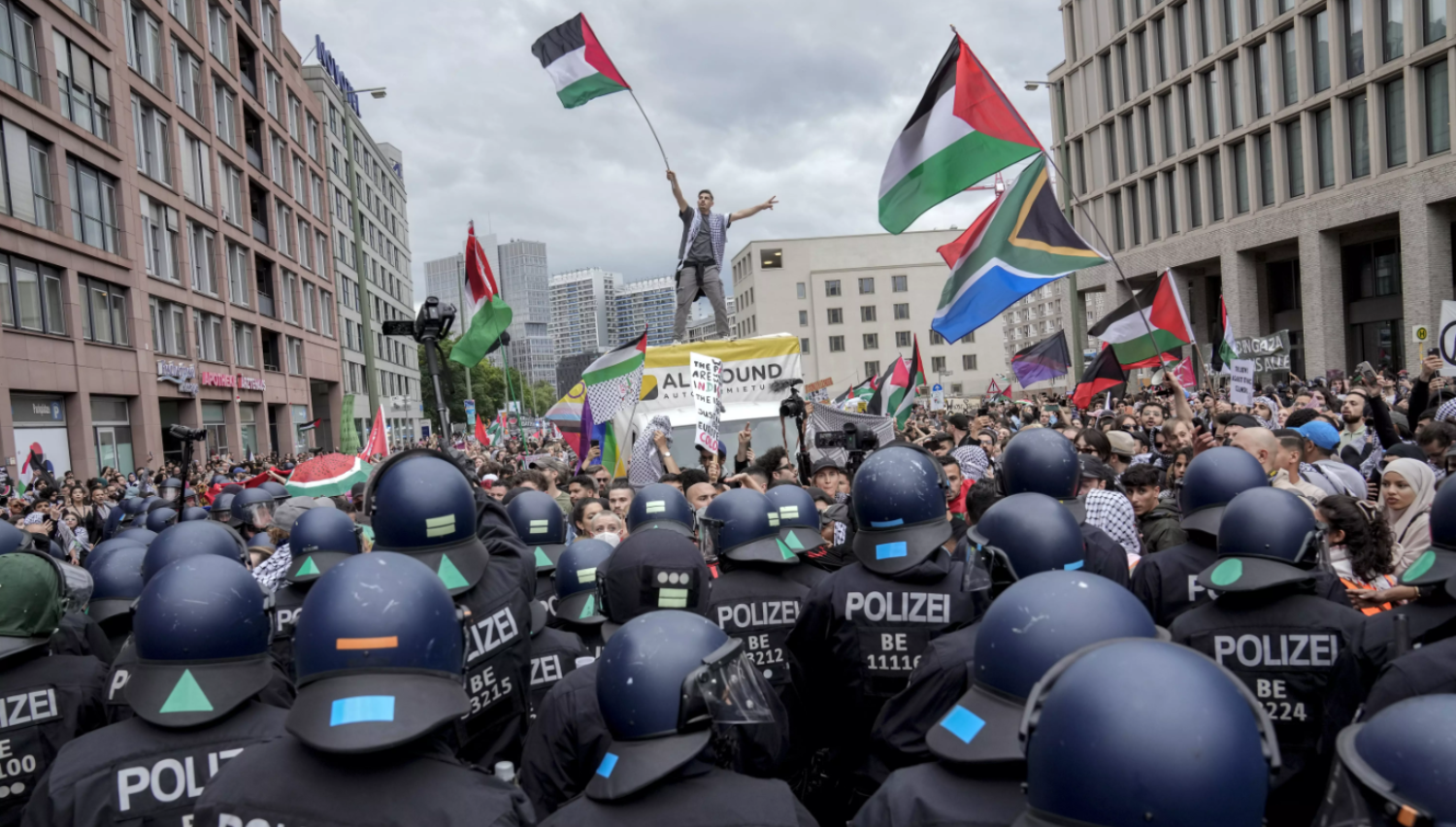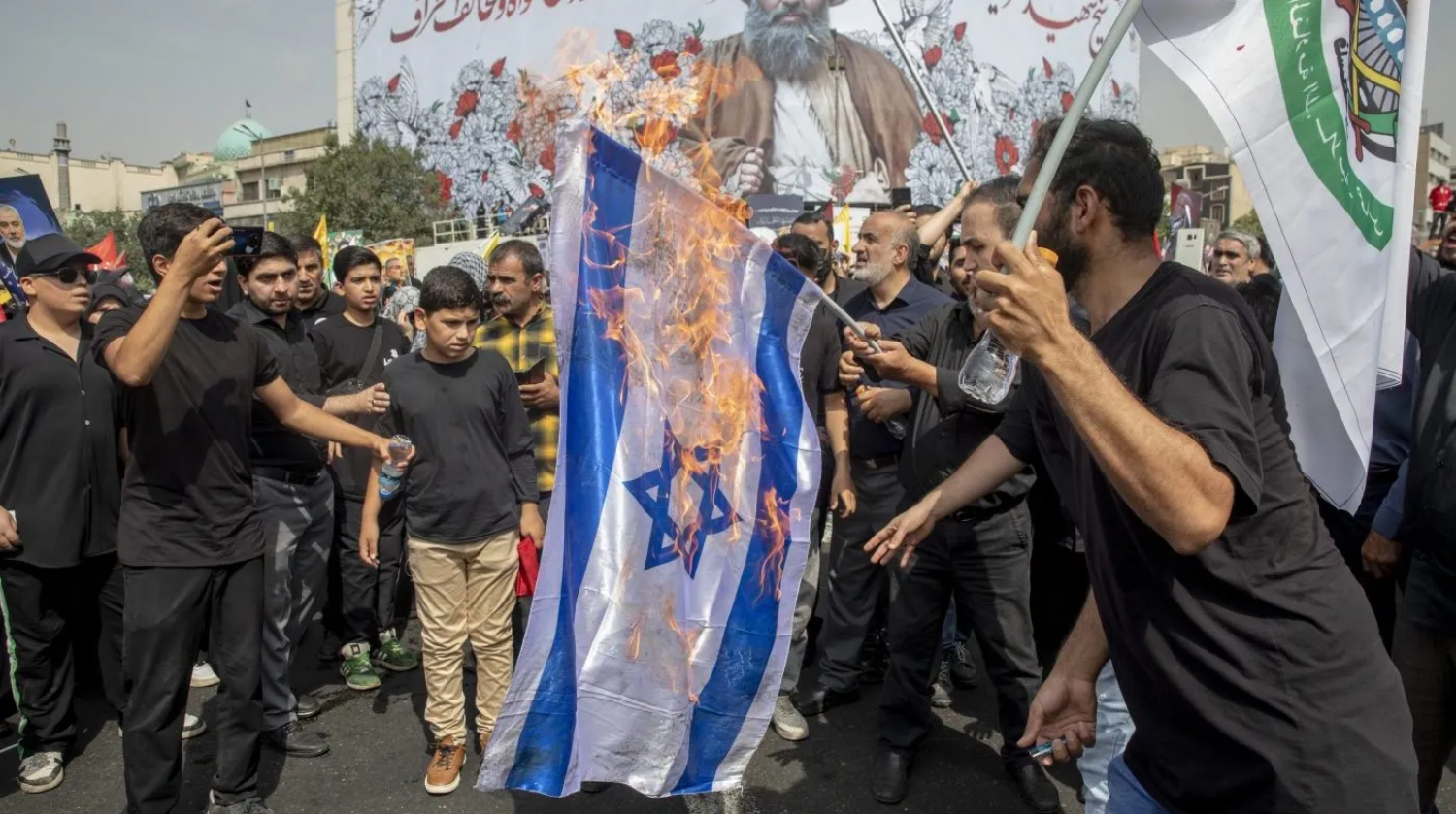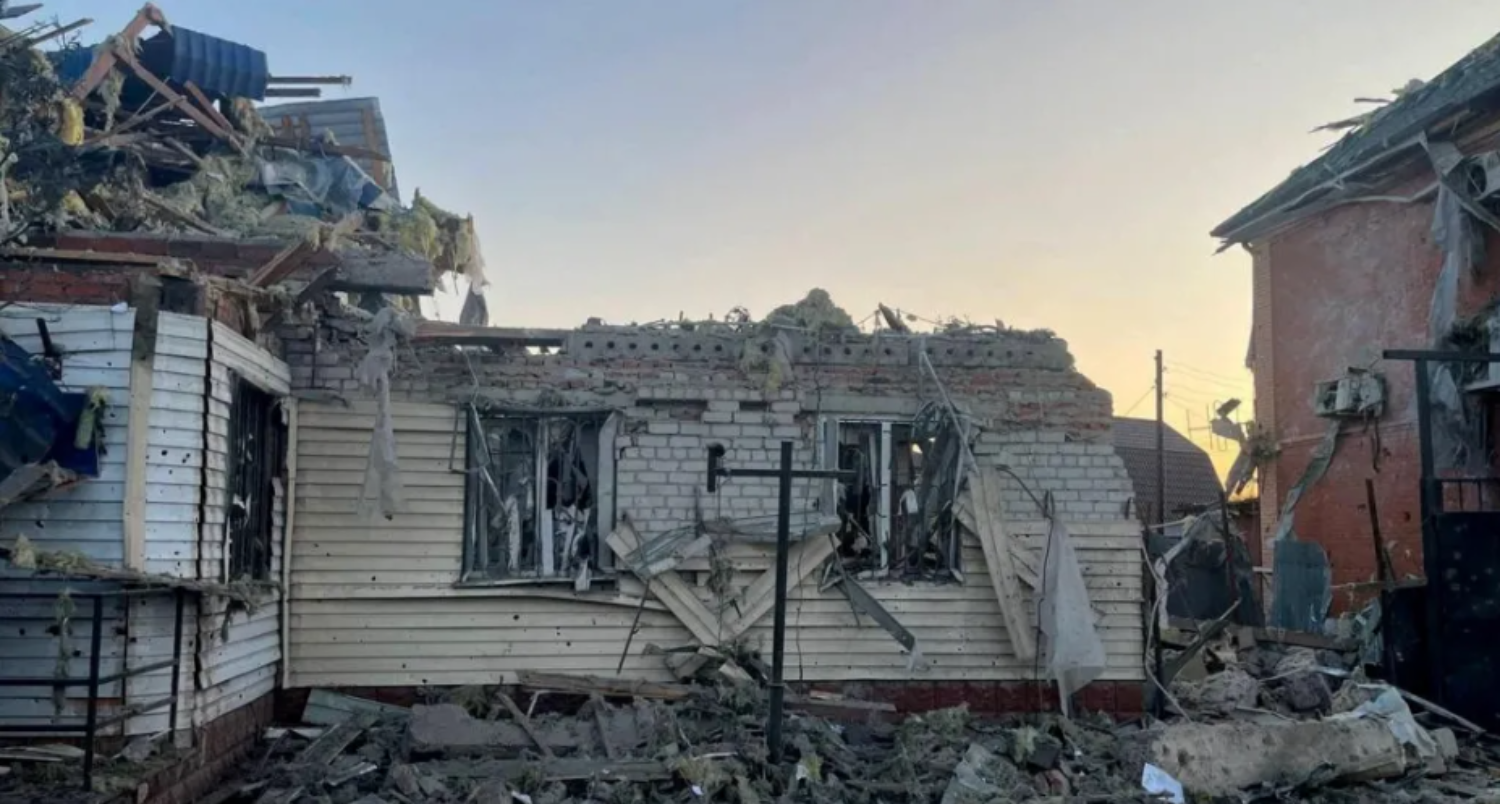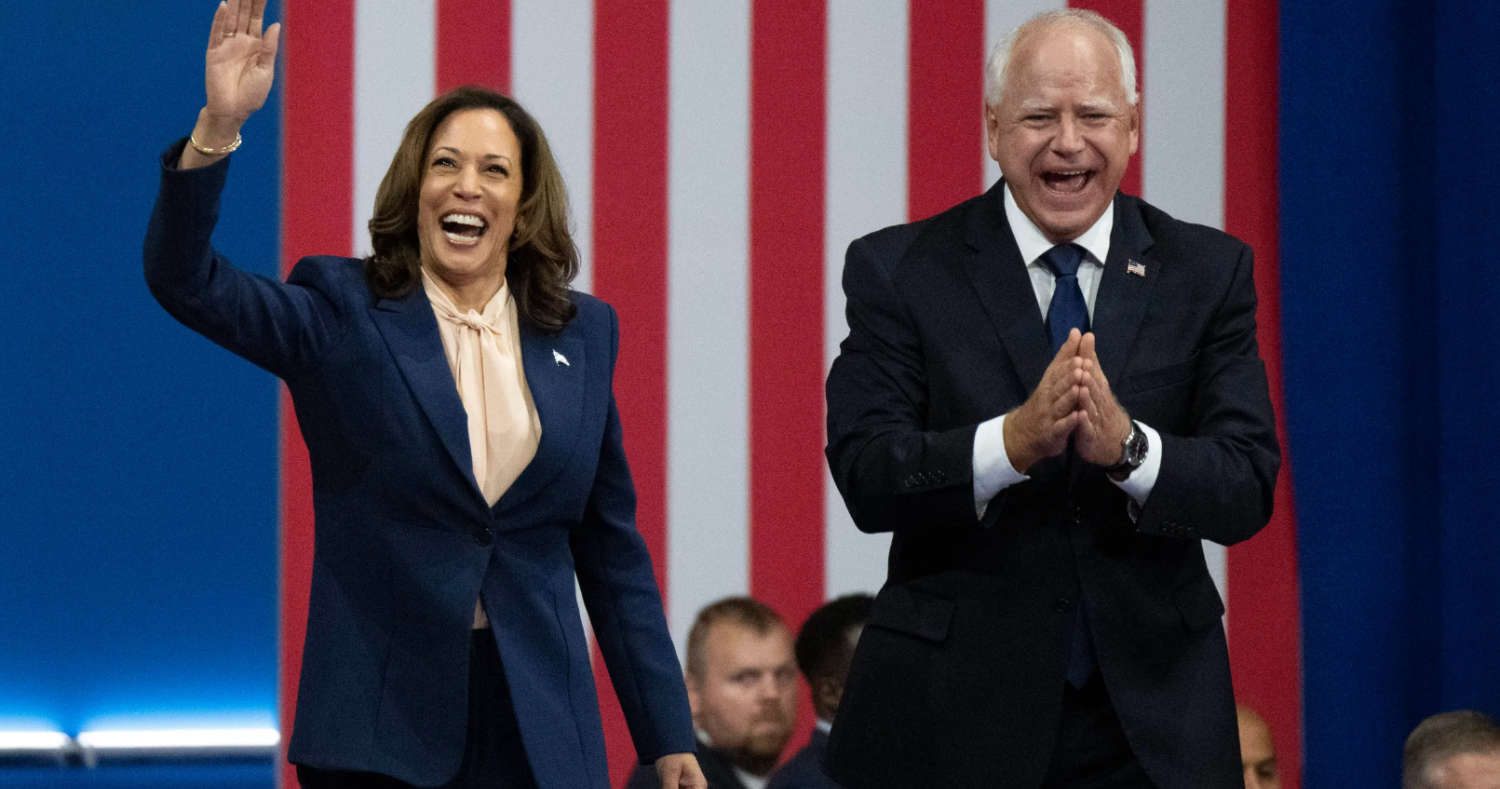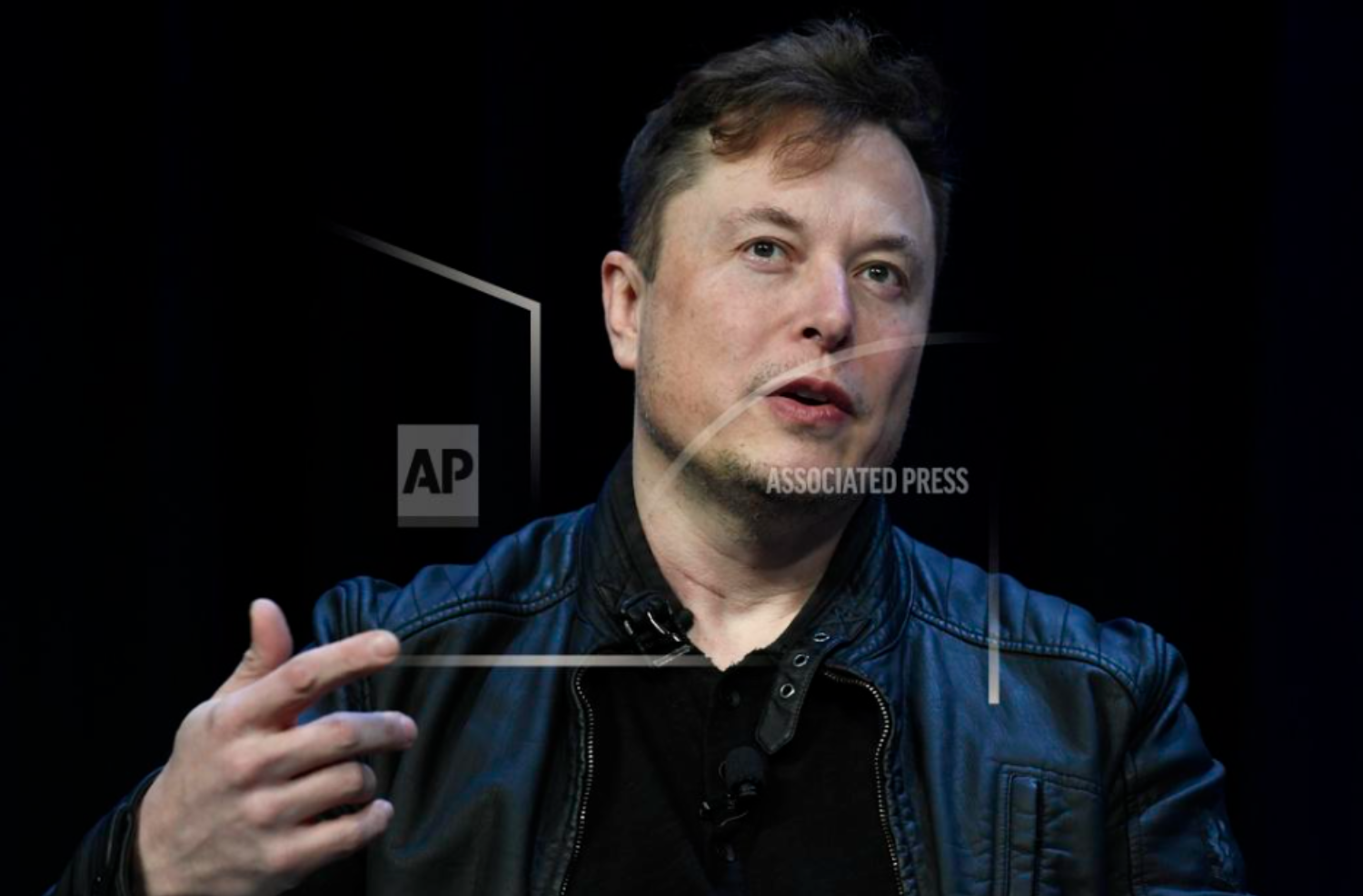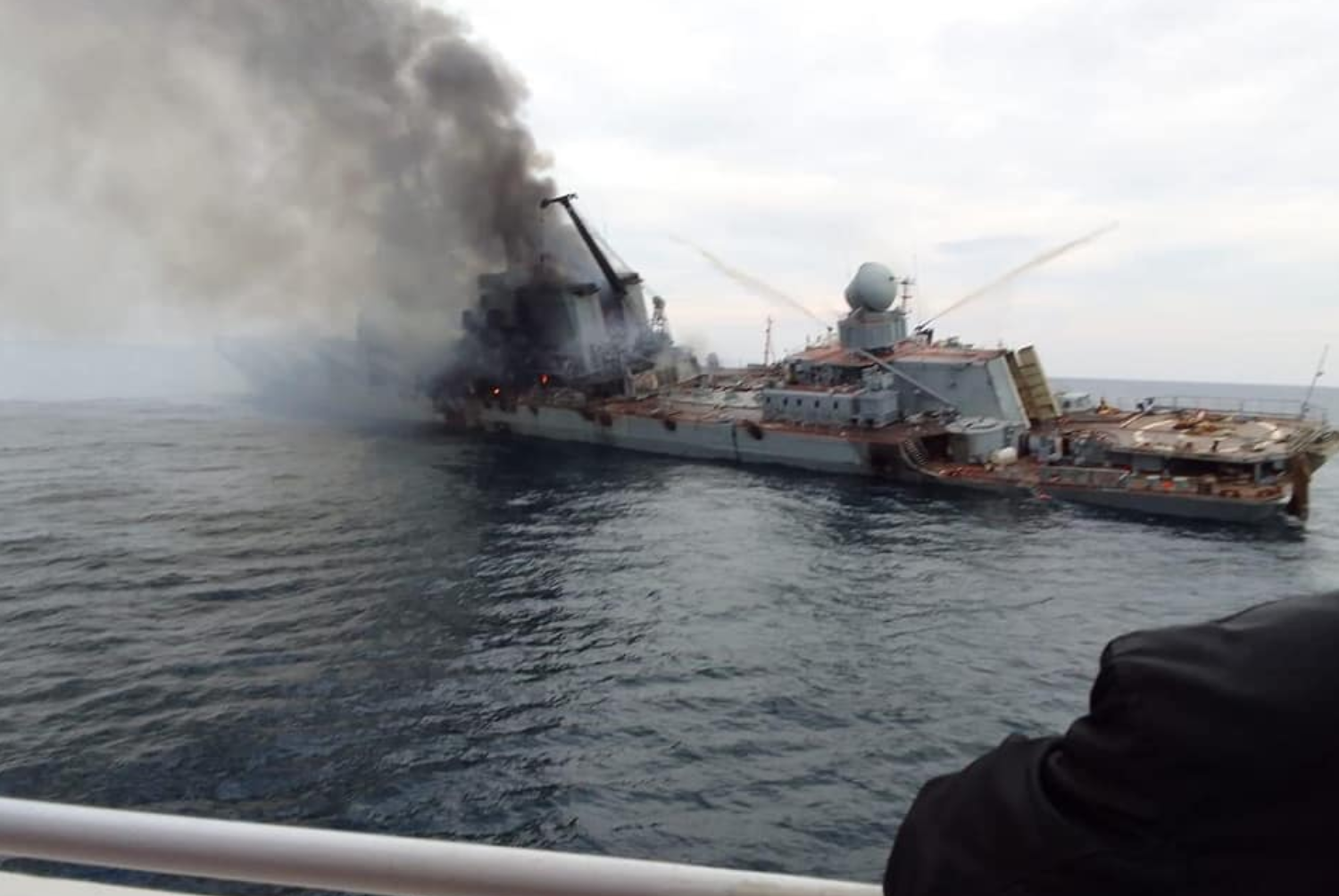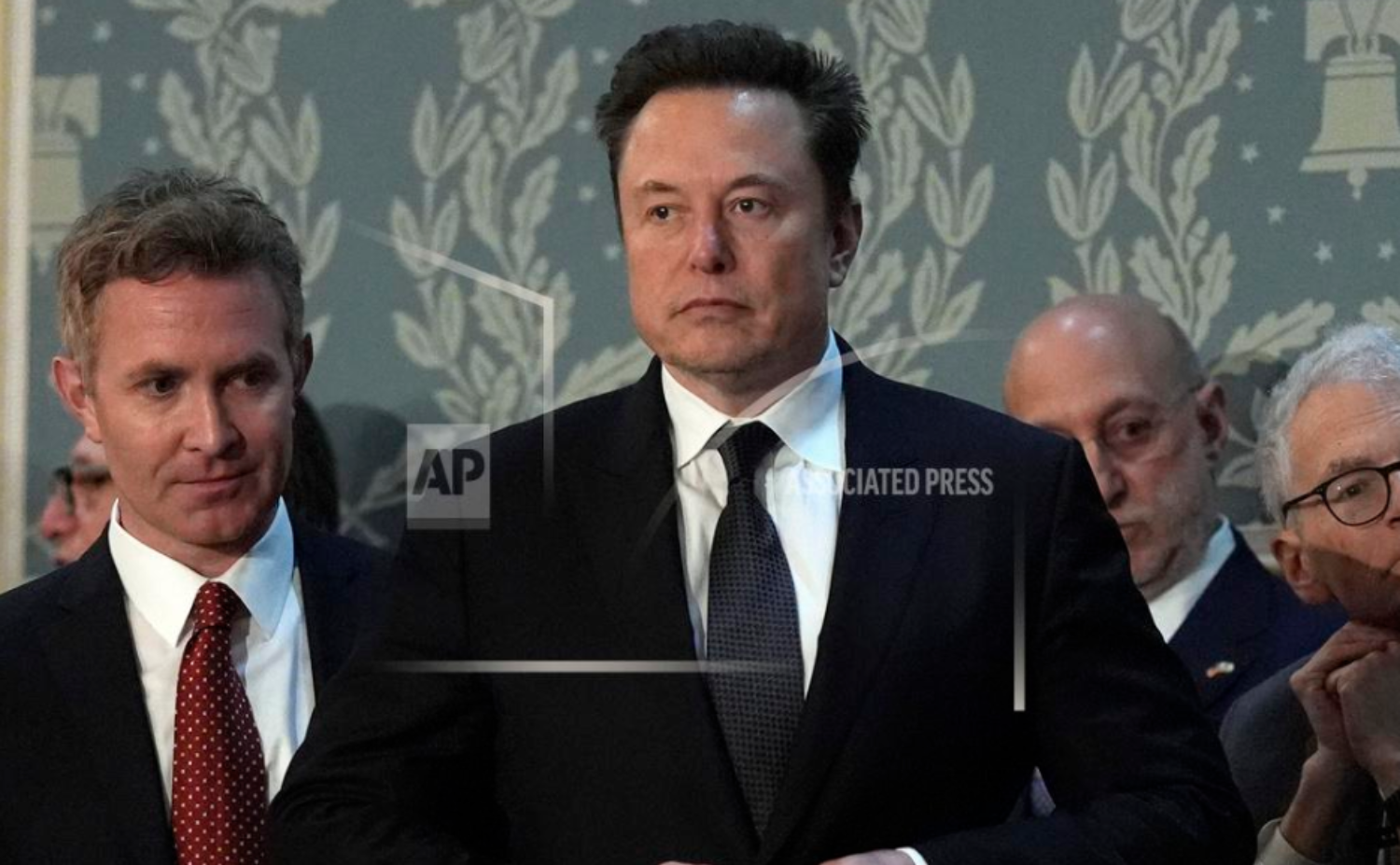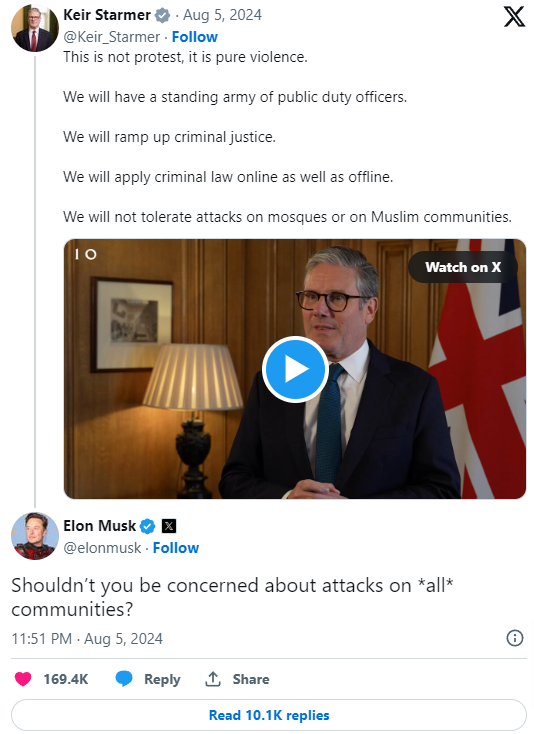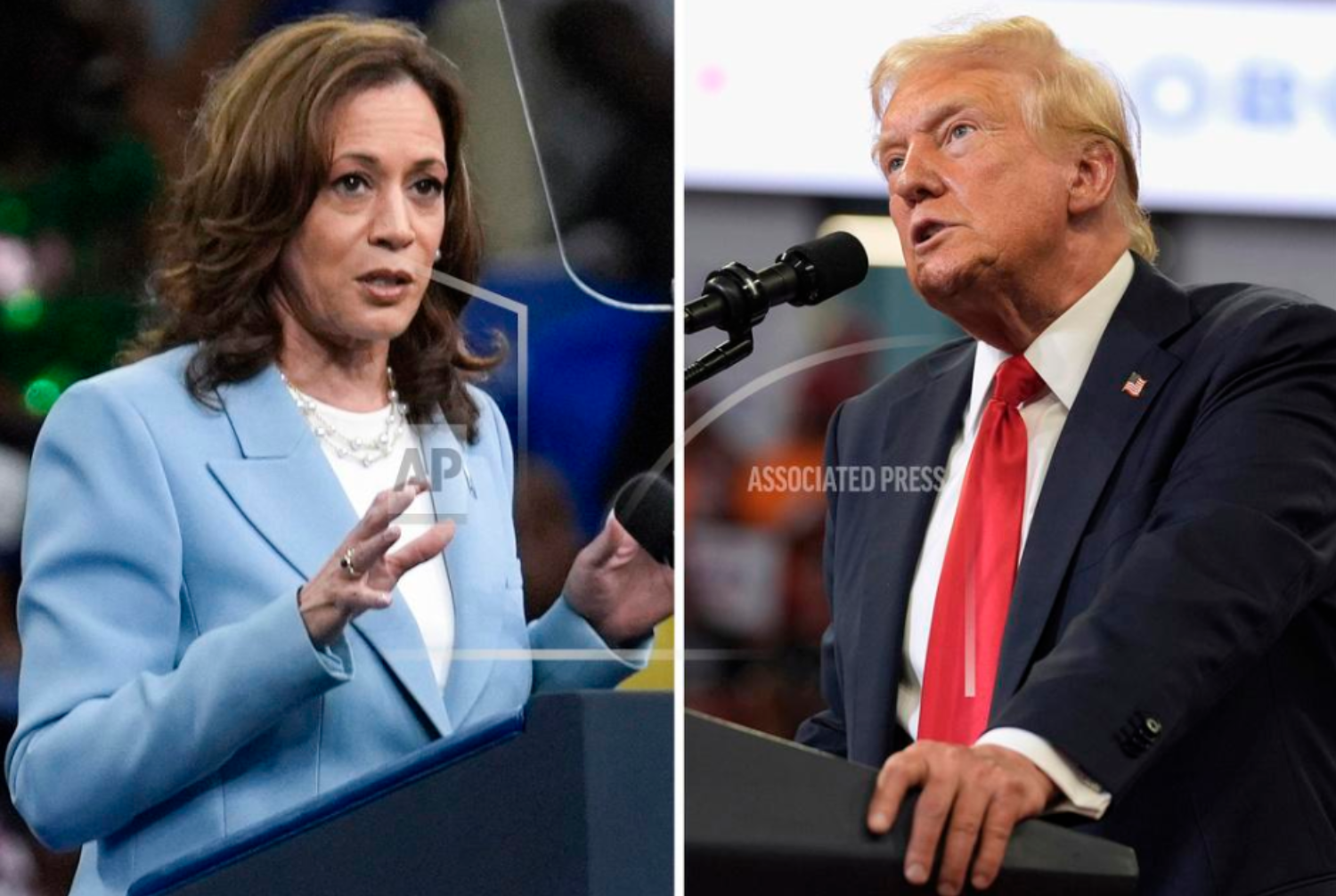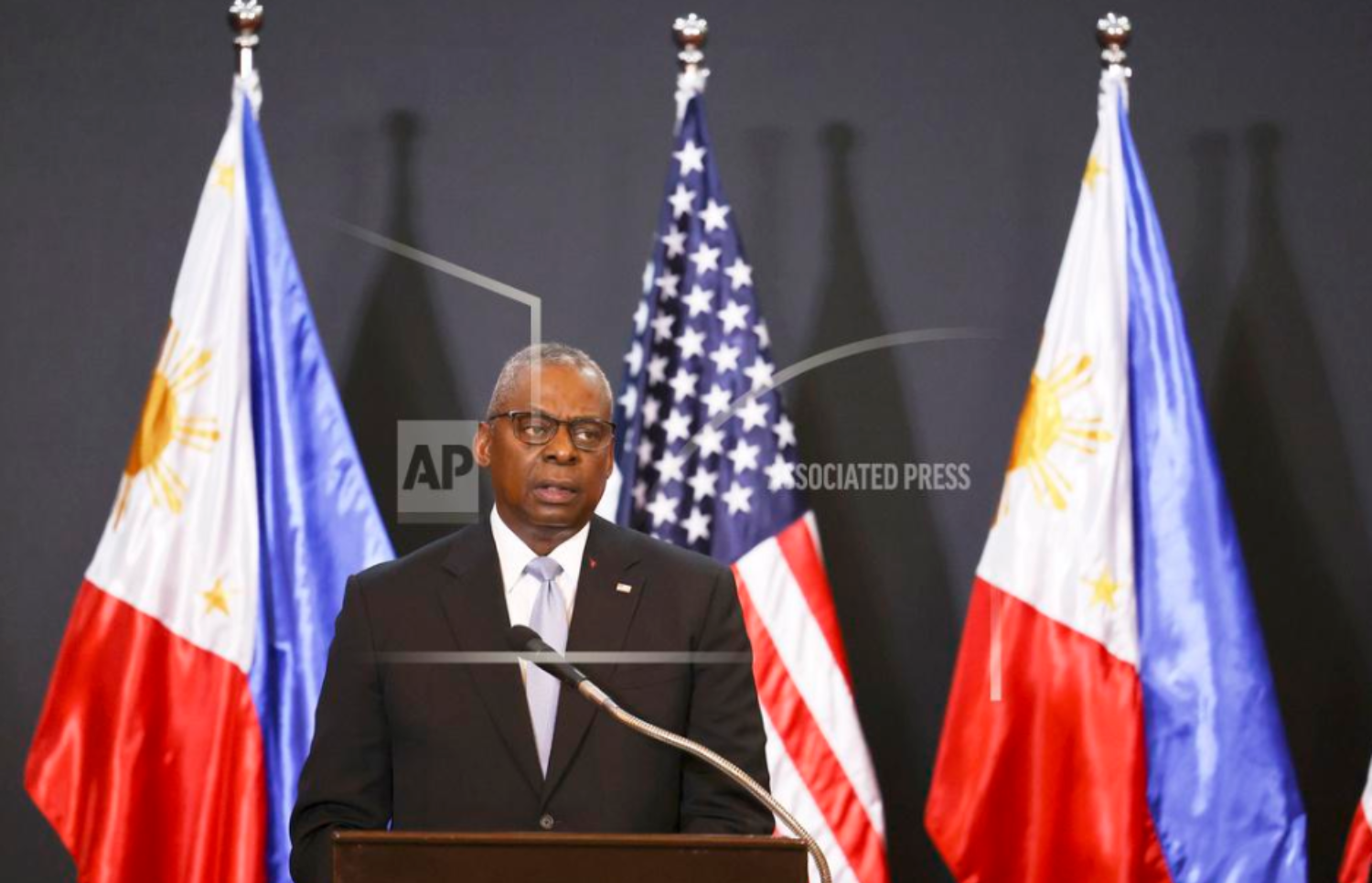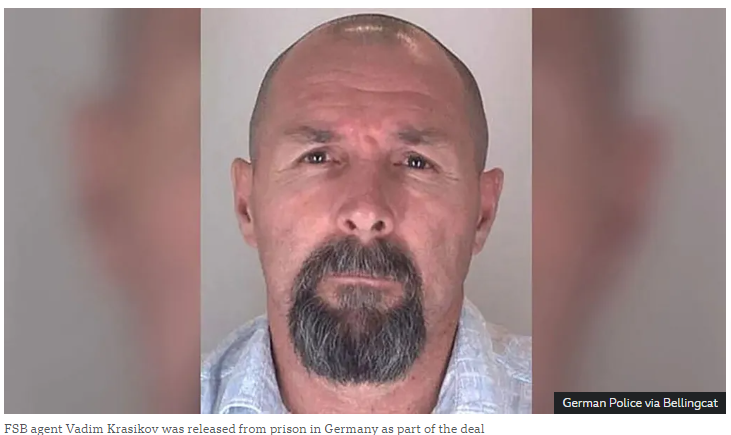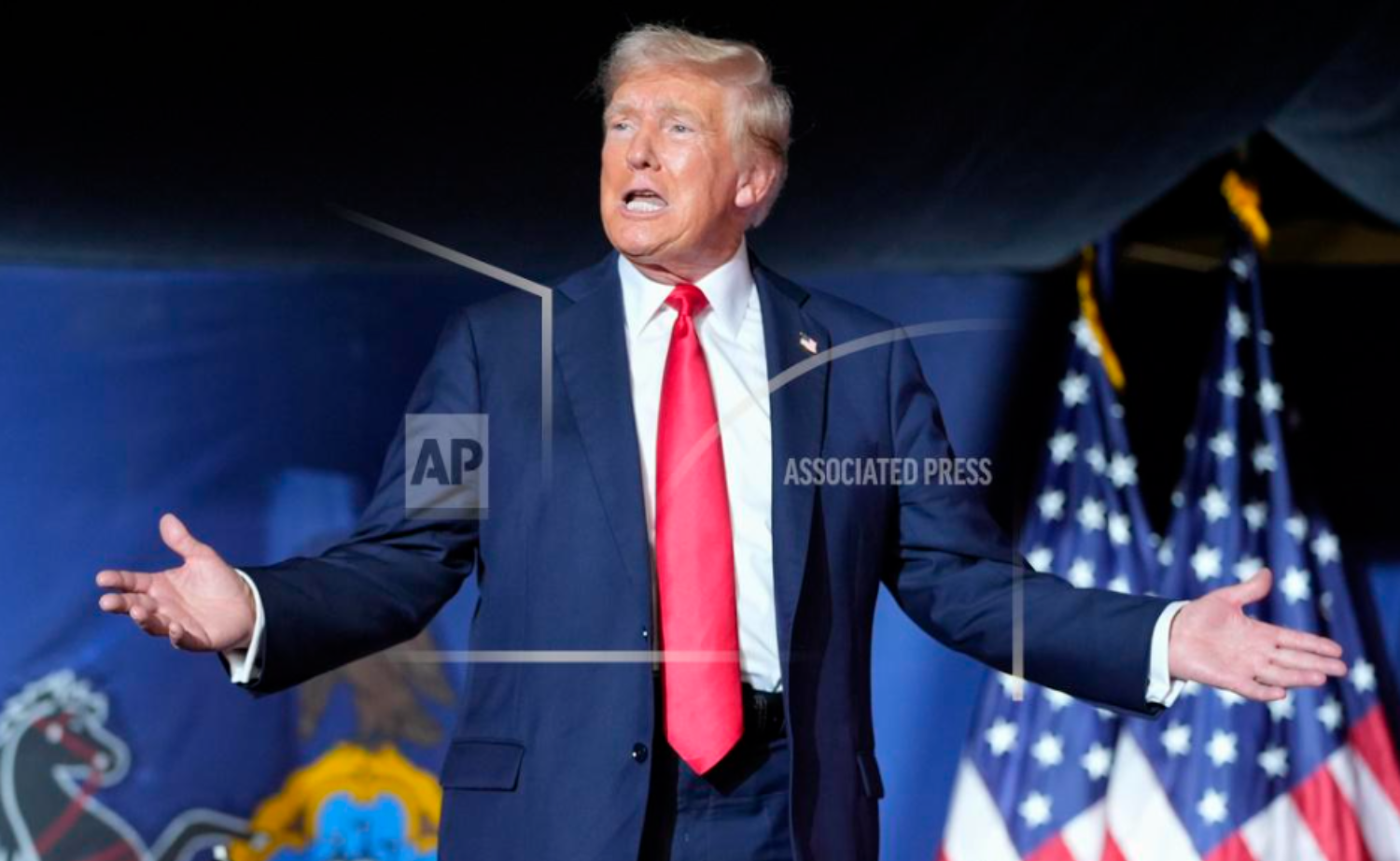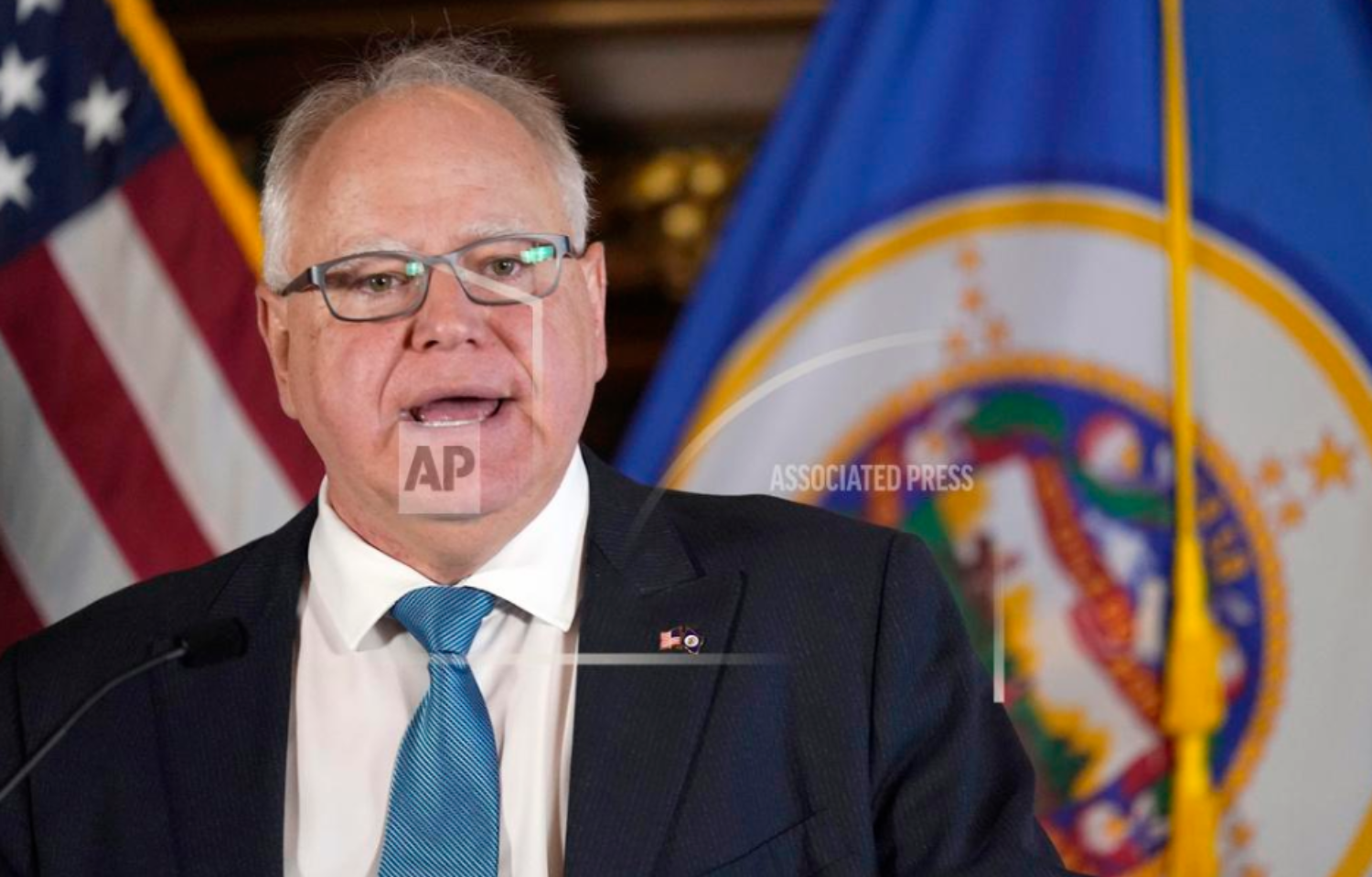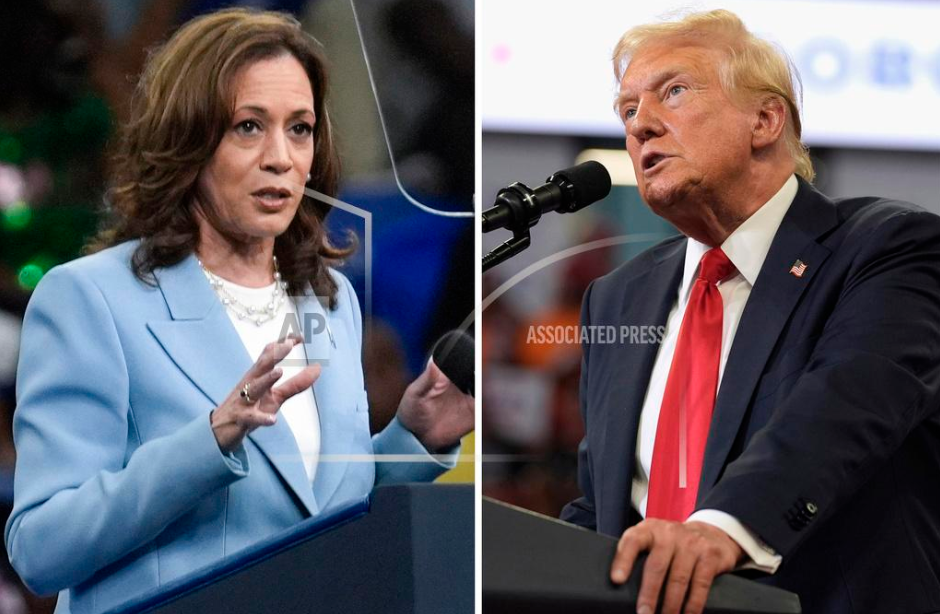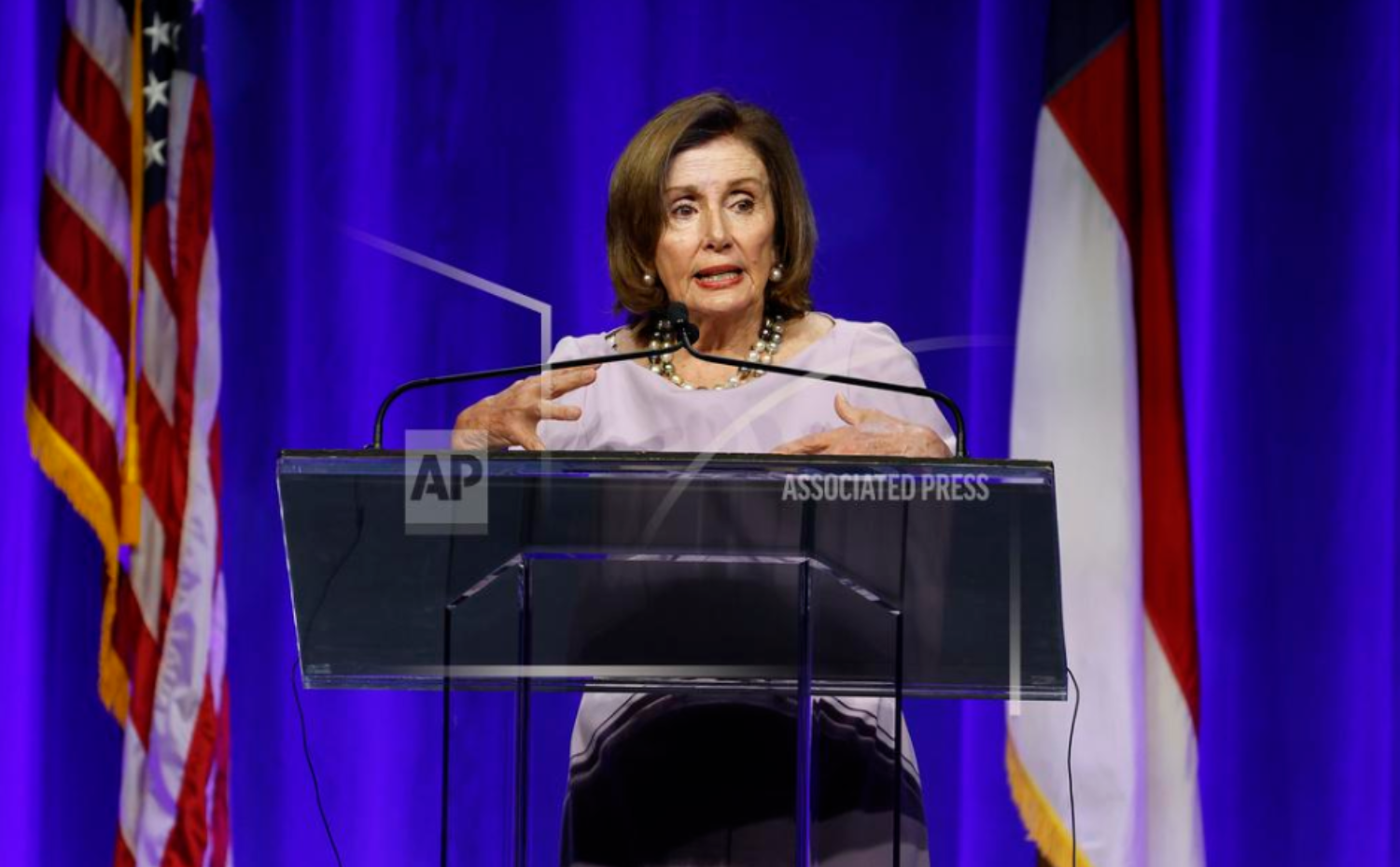-
Posts
10,728 -
Joined
-
Last visited
Content Type
Events
Forums
Downloads
Quizzes
Gallery
Blogs
Everything posted by Social Media
-
Meghan Markle has revealed that she has barely scratched the surface of the trauma she endured as a working member of the British royal family, suggesting that future disclosures may be forthcoming. In an interview with CBS Sunday Morning anchor Jane Pauley, which aired on August 4, Meghan discussed her new project with Prince Harry, "The Archewell Foundation Parent's Network." When asked about her own experiences with suicidal thoughts, the duchess appeared taken aback but responded candidly. The Archewell Foundation Parent's Network was established to support parents whose children have been adversely affected by social media. A collective of parents, whose children were driven to take their own lives due to social media abuse, have launched a campaign in collaboration with the network titled "No Child Lost to Social Media," sharing their tragic stories to raise awareness and seek change. During the interview, Pauley noted that Meghan's openness about her own suicidal thoughts had created a deep connection with others facing similar struggles. Meghan had previously disclosed in a 2021 interview with Oprah Winfrey that the relentless tabloid and social media abuse she faced after joining the royal family led her to consider ending her life while pregnant in 2019. "The connection that you have with people is that they know that you have suffered too, personally contemplating killing yourself," Pauley remarked, observing that Meghan appeared uncomfortable with the topic. Meghan responded, "I understand why you are though. I wasn't expecting it but I understand why you are. Because there is a through line I think and when you've been through any level of pain or trauma I believe part of our healing journey, certainly part of mine, is being able to be really open about it." Meghan went on to say that she has not yet fully discussed the depth of her experiences, hinting at future revelations. "But I do think that I would never want someone else to feel that way. And I would never want someone else to be making those sort of plans. And I would never want someone else to not be believed. If me voicing what I have overcome will save someone, or encourage someone in their life to really genuinely check in on them and not assume that the appearance is good, so everything's okay, then that's worth it. I'll take a hit for that." This comment suggests that if Meghan believes she can help others by discussing the mental health trauma she faced in 2019, she may become more candid with the public. Such revelations are likely to cause concern within the monarchy, especially considering the bombshell nature of her previous disclosures. In her 2021 interview with Oprah Winfrey, Meghan revealed that during a period of intense negative press and social media abuse in January 2019, while pregnant with her son, Prince Archie, she confided in Harry about her suicidal thoughts. "I was really ashamed to say it at the time and ashamed to have to admit it to Harry, especially, because I know how much loss he's suffered. But I knew that if I didn't say it, that I would do it," she said. Harry, unsure of how to help his wife, encouraged her to attend a pre-planned engagement, a Cirque du Soleil performance in London, on the night in question. Photos of the couple smiling at the event have since been cited as an example of how they hid their personal pain behind public masks. Meghan also revealed in the Winfrey interview that she sought help from palace "human resources" but was turned away because she was not a "paid employee." The interview's aftermath saw significant backlash directed at the monarchy, though much of the focus shifted to Meghan's disclosure that an unnamed royal family member had made comments about the potential color of Prince Archie's skin before his birth. Reflecting on the interview during the 2022 Netflix series "Harry & Meghan," Meghan said, "We didn't see it until the world saw it. I thought that me being very open about the depression I experienced and just how extreme that became, I thought that would be the biggest takeaway." Since their split from the monarchy in 2020, Harry and Meghan have faced persistent criticism from some commentators and social media users whenever they discuss their challenges within the institution and with royal family members. Despite the criticism, Meghan has indicated that she has more to say about her experiences. In a 2022 interview with The Cut magazine, she revealed that she kept a diary during her time in the monarchy and that she never signed a non-disclosure agreement with the royals. "I've never had to sign anything that restricts me from talking. I can talk about my whole experience and make a choice not to," she said, adding that she was "still healing." In 2023, representatives for the duke and duchess announced that the couple was moving away from "look back" projects to focus on the future following the release of the Netflix show and Harry's memoir. However, it seems that through their charity work, particularly with the Archewell Foundation, they may continue to share insights from their past to help others. Meghan Markle's recent interview suggests that she may have more to reveal about her time in the royal family, particularly concerning her mental health struggles. As she continues to navigate her new life and work with Prince Harry, the public can expect further insights into her experiences and the challenges she faced. This transparency may not only aid others facing similar issues but also continue to provoke reactions from within the royal establishment and beyond. Credit: Newsweek 2024-08-08 Get our Daily Newsletter - Click HERE to subscribe Cigna offers a variety of health insurance plans designed to meet the minimum requirement for medical treatment coverage, with benefits reaching up to THB 3 million. These plans are tailored to provide comprehensive healthcare solutions for expatriates, ensuring peace of mind and access to quality medical services. To explore the full range of Cigna's expat health insurance options and find a plan that suits your needs, click here for more information.
-
In a controversial decision, a Berlin court has convicted pro-Palestinian activist Ava Moayeri of condoning a crime for leading the chant "from the river to the sea, Palestine will be free" at a rally in the German capital. The rally took place just four days after the Hamas attacks on Israel, and the court's ruling has sparked a heated debate about free speech. Presiding judge Birgit Balzer ordered Moayeri, a 22-year-old German-Iranian national, to pay a €600 (£515) fine, dismissing her defense that she was merely expressing support for "peace and justice" in the Middle East. Balzer stated that she "could not comprehend" the logic of previous German court rulings that found the slogan to be "ambiguous." To her, it clearly "denied the right of the state of Israel to exist." The judge acknowledged that such an opinion could fall under freedom of expression in Germany but emphasized that the context of the "biggest massacre of Jews since the Shoah" made this case particularly sensitive. This trial is one of several in Germany examining the country's strict limits on pro-Palestinian demonstrations since the 7 October Hamas attacks in Israel and the subsequent destruction in Gaza. Moayeri's defense team argued that the ruling marked a defeat for free speech. Her lawyers contended that this was the first trial in Berlin to center on the use of the politically charged phrase. The slogan is especially contentious in Germany, where support for Israel is considered a matter of Staatsräson, or reason of state, due to Germany's historical responsibility for the Holocaust. Judge Balzer also highlighted Germany's obligation to ensure that Jews in the country feel "safe and comfortable," particularly in light of the rise in antisemitic crimes since 7 October. About 100 protesters outside the courthouse could be heard chanting "Free, free Palestine" as the verdict was read. Moayeri, smiling at her 20 supporters inside the courtroom, was met with cheers upon leaving the building. Two members of the public shouted "against repression" after the judge closed the trial. State prosecutors, who had initially demanded a €900 fine, said they would consider an appeal. Moayeri’s lawyer, Alexander Gorski, condemned the ruling as a victory for "state oppression" and vowed to challenge the verdict in a higher court. Moayeri, who has no previous criminal record and identifies as an activist for feminist and refugee causes, co-organized the protest on 11 October near Sonnenallee in the diverse Neukölln district of Berlin. Moayeri testified that the rally was organized in response to media reports of a teacher hitting a pro-Palestinian student, and the protest aimed to condemn "violence in schools." However, two police officers dispatched to the scene disputed this account, stating that participants waved Palestinian flags, wore keffiyehs, and did not mention school safety in their slogans. Her legal team argued that the slogan is a "central expression of the global Palestine solidarity movement" with historical roots predating Hamas. They insisted that Moayeri rejected "any form of antisemitism." The phrase "from the river to the sea" refers to the land between the Jordan River and the Mediterranean Sea, encompassing Israel and the occupied Palestinian territories. The slogan's interpretation varies globally, ranging from calls for peace and democracy to more extreme views. The legal framework in Germany for assessing the slogan is complex, with courts issuing varied interpretations. Last November, Interior Minister Nancy Faeser banned Hamas activities in Germany, including the use of the phrase, declaring it a Hamas slogan. In February, Justice Minister Marco Buschmann suggested that the phrase could be seen as "antisemitic incitement" and as condoning killings committed in Israel. German police have frequently used the slogan as a reason to revoke permission for protests or as a condition for granting permission. In June, a Bavarian court ruled that the phrase expected at an upcoming demonstration in Munich did not constitute a crime and could not be banned outright, stating that the "benefit of the doubt" must prevail. This decision was criticized by the Central Council of Jews in Germany, which represents the roughly 200,000-strong community. The Council stated, "Hamas’s battle cry means the annihilation of Israel and the expulsion and destruction of the Jews living there," emphasizing that it is the German state's "urgent duty" to clarify the phrase's implications. Credit: The Guardian 2024-08-08 Get our Daily Newsletter - Click HERE to subscribe Cigna offers a variety of health insurance plans designed to meet the minimum requirement for medical treatment coverage, with benefits reaching up to THB 3 million. These plans are tailored to provide comprehensive healthcare solutions for expatriates, ensuring peace of mind and access to quality medical services. To explore the full range of Cigna's expat health insurance options and find a plan that suits your needs, click here for more information.
-
There are moments in history when a crisis can become an opportunity for peace. The current tensions in the Middle East, fraught with deep-seated grievances and hostilities, may be one such moment. As conflict looms, there is a chance to step back from the brink and seek a new era of coexistence and mutual respect. The example set by Soviet leader Nikita Khrushchev and President John F. Kennedy during the Cuban Missile Crisis of 1962-1963 offers a powerful lesson. Faced with the potential for nuclear catastrophe, the two leaders took decisive steps to ease tensions. They established a direct communication line, enacted a nuclear test ban, and increased trade. Although détente collapsed in the late 1960s, it was revived in the 1970s and 1980s. Kennedy’s speech at American University on June 10, 1963, was a pivotal moment, signaling a genuine desire for better relations with the USSR. Khrushchev responded positively, and diplomats were able to work out the details. The Middle East, however, presents a more complex web of grievances and conflicts. Each major actor in the region harbors historical resentments. Americans remember the 1979-1981 hostage crisis when Iranian revolutionaries held U.S. diplomats captive. Iranians recall the CIA-backed overthrow of their government in 1953 and the tragic downing of an Iranian passenger plane by the USS Vincennes in 1988, killing all 290 on board. The U.S. withdrawal from the 2015 nuclear deal in 2018 under President Donald Trump further exacerbated tensions, as Washington imposed even harsher sanctions on Tehran. Iran has aligned itself with an authoritarian bloc that includes Moscow, Beijing, and Pyongyang. Despite sporadic reforms, Iran’s theocracy continues to suppress civil liberties, particularly those of women. The U.S. accuses Iran of supporting militant groups like Hamas, Hezbollah, and the Houthi rebels and supplying drones and rockets for Russia’s war in Ukraine. Iran’s recent firing of 300 rockets at Israel, though largely ineffective, and its vow for revenge over the assassination of Hamas leader Ismail Haniyeh, has prompted the U.S. to bolster its military presence in the region to defend Israel. This complex matrix of conflicts appears to be a zero-sum game where any concession by one party is perceived as a loss for another. However, a breakthrough between Washington and Tehran, akin to the U.S.-Soviet accord post-Cuban missile crisis, could pave the way for broader peace negotiations. Such an agreement could contain aggressive policies and bring other regional actors into a more constructive dialogue. Iran is in dire need of relief from the crippling sanctions that have stifled its economy and lowered living standards. Both the Iranian regime and its citizens must weigh the benefits of supporting regional insurgents and Russia’s military against the potential gains of opening up to trade and cooperation with the West. For a sustainable peace, Israel and the Palastinians must commit to a feasible two-state solution even with this being some time away, allowing Palestinians and Israelis to coexist peacefully and fostering good relations with neighbors like Iran and Saudi Arabia. Achieving a broad-based resolution to Middle Eastern conflicts requires the enlightened self-interest of both the public and leaders across multiple nations. While this goal may seem utopian, the alternative is continued suffering and destruction as seen in Syria, Yemen, and Gaza. The “People of the Book” — Jews, Christians, and Muslims — share common values and humanity. Recognizing this shared identity could help avoid further mutual harm. The recent prisoner exchange between Russia and the West, though imperfect, demonstrated that even adversaries with conflicting interests can find common ground for mutual benefit. While not easy, such compromises are sometimes necessary and possible. In the face of escalating tensions, the Middle East must seize this opportunity to turn away from conflict and move towards lasting peace. Credit: Hill 2024-08-08 Get our Daily Newsletter - Click HERE to subscribe Cigna offers a variety of health insurance plans designed to meet the minimum requirement for medical treatment coverage, with benefits reaching up to THB 3 million. These plans are tailored to provide comprehensive healthcare solutions for expatriates, ensuring peace of mind and access to quality medical services. To explore the full range of Cigna's expat health insurance options and find a plan that suits your needs, click here for more information.
-
The United States has unveiled plans for more frequent deployments of bomber aircraft to Australia, citing concerns over China’s escalating military behavior in the region. This announcement comes after annual discussions between high-ranking officials from both nations, reinforcing a long-term trend of increasing American military presence in Australia. These plans include upgrading Australian military bases and pre-positioning U.S. army equipment on Australian soil. Critics argue that these moves could heighten tensions with Beijing and make Australia a more prominent target. However, the Australian government asserts that the presence of American forces provides significant opportunities to collaborate with neighboring countries. Australia's Foreign Affairs Minister, Penny Wong, and Defense Minister, Richard Marles, underscored the benefits of these deployments following their meetings with U.S. Secretary of State Antony Blinken and Secretary of Defense Lloyd Austin during the Australia-U.S. Ministerial Consultations, known as Ausmin. Historically, these talks have been used to expand rotational visits by U.S. forces to Australia, termed “force posture initiatives.” For example, U.S. marines have been deploying to Darwin under an agreement originally established by the Gillard government and the Obama administration. Austin confirmed that the two countries would continue deepening their force posture cooperation, which will include an increased presence of rotational U.S. forces in Australia. This will involve more maritime patrol and reconnaissance aircraft operating from bases across northern Australia, as well as more frequent bomber deployments. Marles highlighted that the recent meeting further solidified American force posture in Australia across various domains, including land, sea, air, cyber, and space. He argued that the presence of American forces allows for greater collaboration with regional neighbors, contributing to the stability and peace of the Indo-Pacific region. This enhanced cooperation has enabled Australia and the U.S. to conduct more extensive activities and operations with partners such as Japan and the Philippines. Marles emphasized, "The presence of American force posture in our nation provides an enormous opportunity to work with our neighbours in the region." The discussions also reviewed substantial progress on Australia’s plan to acquire nuclear-powered submarines under the Aukus security pact. The joint statement from the meeting criticized China’s “excessive maritime claims in the South China Sea” and its “dangerous and escalatory behavior toward Philippine vessels lawfully operating within the Philippines’ exclusive economic zone.” However, the statement also stressed the importance of maintaining open channels of communication with China to avoid miscommunication or miscalculation that could lead to unintended escalation or conflict. Both the U.S. State Department and the Australian Department of Foreign Affairs and Trade agreed to launch a bilateral dialogue aimed at reducing the risk of conflict and upholding peace in the Indo-Pacific. Beijing has repeatedly argued that the Aukus pact and other U.S.-led groupings, such as the Quad, only serve to heighten regional tensions. Some Australian analysts have echoed these concerns, warning about the implications of hosting U.S. combat forces and adopting a military strategy focused on countering China. Sam Roggeveen, the director of the Lowy Institute’s international security program and a former Australian intelligence analyst, has cautioned about the risks associated with integrating U.S. combat forces and its military strategy to fight China onto Australian shores. In a separate matter, U.S. Secretary of State Antony Blinken declined to comment on the potential pardon for WikiLeaks founder Julian Assange or the Australian government's handling of his possible return to Australia following a plea deal. Blinken stated, “We didn’t talk about this at all today – it didn’t come up in our conversations. As far as I’m concerned, there’s a legal process, it’s been concluded, and I’ll leave it at that.” The increased U.S. military presence in Australia marks a significant step in ongoing efforts to counter China's influence in the Indo-Pacific region. While this move is seen by some as necessary for regional security, it continues to spark debate over its long-term implications for Australia's strategic landscape. The Australian government remains committed to its alliance with the United States, describing it as its “closest ally and principal security partner.” The U.S. also emphasized the importance of working together with regional partners to maintain stability and peace, despite the criticisms and potential risks involved. Marles concluded by acknowledging the genuine appreciation expressed by Australia’s neighbors for the contribution that America is making to the stability and peace of the Indo-Pacific region through its presence in Australia. This ongoing partnership allows for a much greater range of activities and operations, enhancing regional security and cooperation. As the geopolitical landscape continues to evolve, the alliance between the United States and Australia remains a crucial element in addressing the challenges posed by China's rising assertiveness in the region. Credit: The Guardian 2024-08-08 Get our Daily Newsletter - Click HERE to subscribe Cigna offers a variety of health insurance plans designed to meet the minimum requirement for medical treatment coverage, with benefits reaching up to THB 3 million. These plans are tailored to provide comprehensive healthcare solutions for expatriates, ensuring peace of mind and access to quality medical services. To explore the full range of Cigna's expat health insurance options and find a plan that suits your needs, click here for more information.
-
A state of emergency has been declared in the Kursk region following the rare cross-border attack by Ukrainian troops that has persisted into its second day. The acting regional governor, Alexei Smirnov, emphasized that this move was essential "to eliminate the consequences of enemy forces coming into the region." In response to the incursion, thousands of people have been evacuated from border areas, and doctors are being brought in from other cities to manage the situation. The unusual cross-border activity prompted President Vladimir Putin to accuse Ukraine of launching a "major provocation." According to Moscow, hundreds of Ukrainian troops crossed the border near the town of Sudzha, approximately 10 kilometers from the border, on Tuesday morning. These forces were reportedly supported by 11 tanks and over 20 armored combat vehicles. Such incursions by Ukrainian forces into Russian territory have been exceedingly rare since Russia began its full-scale invasion of Ukraine in February 2022. On Wednesday evening, Ukrainian MP Oleksiy Honcharenko claimed that the Ukrainian army had taken control of the Sudzha gas hub, a critical facility for the transit of natural gas from Russia to the EU via Ukraine. Although the BBC has not verified this claim, Honcharenko's statement marks the first official acknowledgment from a Ukrainian representative of an incursion into Russian territory. Prior to this, Kyiv had remained silent on reports of the cross-border attack. In response, a White House spokesperson stated that the US had no prior knowledge of the attack and intended to contact the Ukrainian military to understand their objectives better. On social media, Honcharenko remarked, "Our mission is to defeat Russia. We need to beat their territory and need to destroy the enemy everywhere." Russian military officials provided further details on the situation. In televised remarks, Russia's Chief of General Staff Valery Gerasimov informed President Putin that the Ukrainian "advance" into the Kursk region had been halted, with Russian forces continuing to counter the adversary near the Russian-Ukrainian border. Gerasimov reported that up to 1,000 Ukrainian troops had entered the region with the intent of taking over the area around Sudzha. He claimed that Russian forces had killed 100 Ukrainian soldiers and injured another 215. Despite these official statements, some pro-war Telegram channels suggested that the situation on the ground might be more precarious than the Kremlin indicated. Blogger Yuri Kotenok described the fighting in Sudzha and nearby Korenevo as "heavy," while the channel Rybar reported that the situation around Sudzha was "continuing to deteriorate" with Ukrainian forces advancing toward the town. The Russian National Guard has increased security at the Kursk nuclear power plant, located about 70 kilometers northeast of Sudzha. President Putin accused Ukrainian forces of "firing indiscriminately" at civilian buildings and residences. According to Russian authorities, fighting occurred in various villages on Russian territory on Tuesday, followed by Ukrainian air attacks that reportedly killed three civilians and continued into the night. Moscow claimed that 24 people, including six children, were wounded due to Ukrainian shelling in the border region. Local authorities in Kursk issued multiple air alerts, urging residents to limit their movements and canceling all public events. Footage verified by the BBC showed fighter jets flying low over the region on Tuesday, with smoke rising from the ground. In the neighboring Belgorod region, Governor Vyacheslav Gladkov also issued missile attack warnings throughout the day, reporting injuries from Ukrainian air attacks. On Wednesday, the head of Ukraine's Sumy region, Volodymyr Artyukh, ordered the evacuation of areas bordering the Kursk region. A Ukrainian military colonel, Vladislav Seleznyov, described the attack as "preventative," citing an estimated 75,000 Russian troops gathering near the border. Following a major Russian incursion into the northeastern Kharkiv region in May, there had been concerns about a similar move into the Sumy region. With Ukrainian forces now apparently capturing several settlements and highways in the opposite direction, these Russian ambitions may be thwarted for the time being. However, some military analysts are questioning the wisdom of such cross-border raids given Ukraine's already overstretched and outnumbered forces. This is not the first instance of Ukrainian-based fighters crossing into Russia. Last year, anti-Kremlin groups launched raids that were repelled. These forces crossed into the Belgorod and Kursk regions again in March, engaging in clashes with Russian security forces. The question arises: Why has Ukraine launched this cross-border attack on Russia? One of Ukraine’s significant battlefield challenges is manpower, as Russia has more soldiers and is advancing closer to the eastern Ukrainian town of Pokrovsk. Deploying hundreds of Ukrainian soldiers into Russia might seem counterintuitive to some military experts. However, war expert Kostyantyn Mashovets suggested in a Facebook post that the move was part of a "clear plan." Military analyst Mykhaylo Zhyrokhov noted that Russia had to redeploy some troops from the front lines in eastern Ukraine, indicating a strategic advantage for Ukraine. This incursion is unlikely to signify an attempt by Ukraine to occupy Russian territory, but it appears to be succeeding in its goal of drawing Russian forces away from other fronts. Recent history also plays a role; Russia’s major cross-border offensive into Ukraine's northeastern Kharkiv region has seen its momentum slow, especially after the US permitted Ukraine to target locations inside Russia. Ukrainian concerns about a similar attack into the northern Sumy region have been growing. Given Western apprehensions about the war escalating, it's plausible that some form of permission was granted for an operation of this scale on Russian soil. Most senior Ukrainian officials have remained tight-lipped about the attack. The president's office has refrained from commenting. While there have been previous incursions, this marks the first time regular Ukrainian forces have been deployed in such a manner. Across the border, Russian military channels quickly reported the assault, involving hundreds of troops and several rocket and drone attacks. Local officials promptly announced casualties and evacuations, and neighboring regions offered support to those displaced. A state of emergency was declared in the area. Russia’s Defense Ministry admitted to redeploying troops towards Sudzha. President Putin, publicly briefed by his security chiefs, described the attack as "barbaric" and "terrorist," reflecting Russia’s shock at this unexpected development in the conflict. Until this incident, Russia had been steadily capturing territory, outnumbering Ukrainian forces. Now, it faces a new challenge. The Kremlin is using the assault as further justification for its continued war effort, which it still frames as "defensive." Military analyst Mykhaylo Zhyrokhov suggests that for Ukraine, if this operation stalls or prevents a major Russian attack in its north, it will be seen as a success. President Zelensky echoed this sentiment, stating, "The more pressure is exerted on the aggressor that brought the war to Ukraine, the closer peace will be." He concluded with a call for "just peace through just force." Credit: BBC 2024-08-08 Get our Daily Newsletter - Click HERE to subscribe Cigna offers a variety of health insurance plans designed to meet the minimum requirement for medical treatment coverage, with benefits reaching up to THB 3 million. These plans are tailored to provide comprehensive healthcare solutions for expatriates, ensuring peace of mind and access to quality medical services. To explore the full range of Cigna's expat health insurance options and find a plan that suits your needs, click here for more information.
-
Paris prosecutors are currently investigating a series of death threats and other offenses targeted at athletes from Israel's Olympic team. These threats are arising amid heightened tensions over the ongoing Gaza war and growing fears of a wider conflict in the Middle East. The Israeli Olympic team has reported that some athletes have received threats while competing in Paris, driven by the broader turmoil linked to Palestinian casualties in Gaza and the looming risk of regional escalation. Yael Arad, president of the Israeli National Olympic Committee, on Tuesday that team members had been subjected to "centralized" threats designed to create "psychological terror" among the athletes. She did not provide further specifics. In response, Paris prosecutors launched an investigation last week into the emailed death threats received by Israeli athletes. Additionally, the national cybercrime agency is scrutinizing the leak of personal data of some Israeli athletes, which has since been removed from the internet. Prosecutors have also opened an inquiry into incidents of inciting racial hatred after Israeli athletes faced “discriminatory gestures” during an Israel-Paraguay match. Among those affected is Tom Reuveny, a 24-year-old Israeli athlete who recently won a gold medal in windsurfing. He reported receiving threats and emphasized the importance of keeping politics separate from the Olympic Games. “I don’t think any politics should be involved in sport, especially in the Olympic Games,” Reuveny stated during a memorial for the 11 Israeli athletes killed at the 1972 Munich Olympics. “Unfortunately, there is a lot of politics involved — not in the Games — of the people who don’t want us to compete and don’t want us to be here. I’ve gotten quite a few messages and threats.” While Israel advocates for the Olympics to remain a neutral ground, the Palestinian delegation uses the Games to highlight the daily struggles of Gazans. Palestinian American Olympic swimmer Valerie Tarazi expressed her distress over the situation, saying, “The thing that really hurts me is that people are looking at Palestinians as just numbers now. The number of people that died. The number of people displaced.” She continued, “As athletes, we're here just as everyone else. We want to compete. As people, we have lives. ... We want to live in our homes, just like everyone else in the world." Tensions across the Middle East have intensified following the recent killings of a senior Hezbollah commander in Lebanon and Hamas’ top political leader in Iran, both allegedly by Israeli strikes. Both Hezbollah and Hamas are supported by Iran. The Palestinian Olympic team has called for the International Olympic Committee (IOC) to ban Israel from the Games, citing alleged violations of the Olympic charter. Despite submitting this demand last week, the Palestinian delegation has yet to receive a response from the IOC and plans to escalate their plea to higher sports courts. Israeli athletes have faced hostile receptions, with stadiums erupting in jeers during the country's national anthem and athletes arriving at events under heavy police escort, including riot police vans. “It’s not easy to be an Israeli athlete in the international arena these days,” commented Arad, head of Israel's Olympic committee. The Olympics, she emphasized, should serve as “a bridge between people, between countries, between religions. And we are here to compete.” Credit: France 24 2024-08-07 Get our Daily Newsletter - Click HERE to subscribe Cigna offers a variety of health insurance plans designed to meet the minimum requirement for medical treatment coverage, with benefits reaching up to THB 3 million. These plans are tailored to provide comprehensive healthcare solutions for expatriates, ensuring peace of mind and access to quality medical services. To explore the full range of Cigna's expat health insurance options and find a plan that suits your needs, click here for more information.
-
When Vice President Kamala Harris selected Minnesota Governor Tim Walz as her running mate, bypassing Pennsylvania Governor Josh Shapiro, it sparked immediate criticism and speculation. Many political analysts and insiders believe this decision marks a significant strategic misstep for Harris's campaign. First and foremost, the electoral importance of Pennsylvania cannot be overstated. As a pivotal battleground state, securing Pennsylvania is crucial for any presidential hopeful. Shapiro, with his impressive 64 percent approval rating, could have provided a substantial boost to Harris's chances in this critical state. In contrast, Minnesota is widely considered a safer state for Democrats, making Walz's addition less impactful in terms of electoral strategy. Furthermore, selecting Shapiro would have offered a distinct generational appeal. At 51 years old, Shapiro represents a younger, more dynamic option, which would have presented a sharp contrast to former President Donald Trump. Although Walz is only nine years older than Shapiro and a few months older than Harris, he presents a much older image. This generational difference could have resonated with voters seeking a fresh perspective and a break from the past. Another significant factor is Shapiro's perceived moderate stance, which could have attracted politically homeless Americans and moderate Republicans. His support for school vouchers, balanced approach to fracking, and strong condemnation of antisemitism by protesters against the Gaza war illustrate a centrist position that could appeal to a broader electorate. Walz's selection, however, might reinforce the perception of Harris as a left-wing liberal. Although Walz has a background that includes being a veteran and a high school football coach, his record, such as signing a law allowing undocumented immigrants to receive driver's licenses and his response to the George Floyd protests, provides ample fodder for Republican critics. The issue of Shapiro's Jewish heritage has also been a point of contention. Some speculate that his Jewish background played a role in his being overlooked, given the potential for internal conflicts within the Democratic Party. Speaker Mike Johnson (R-La.) articulated this sentiment, suggesting that Shapiro’s Jewish heritage was a major factor in the decision. "I think that clearly was a major factor, is that she was reluctant to put a vice presidential nominee on the ticket with Jewish heritage because they’re having a split in the Democratic Party," Johnson said. He further asserted, "Sadly for Josh Shapiro, because of his heritage, I think that is the reason he was overlooked." Shapiro's strong leadership and balanced views, particularly on the Israel-Hamas conflict, garnered disproportionate scrutiny from the far left. Despite his pro-Israel stance, Shapiro has also voiced criticism of Israeli Prime Minister Benjamin Netanyahu, calling him "one of the worst leaders of all time." Supporters argue that the intense scrutiny he faced was fueled by antisemitism. Rep. Debbie Wasserman Schultz (D-Fla.), a Jewish lawmaker, highlighted this issue, saying, "It has been very noticeable that of all of the people that she is carefully considering, that the only Jewish candidate is getting excruciating, very specific scrutiny, particularly around his positions on Israel." In her social media announcement, Harris praised Walz for his impressive background and commitment to family. "But what impressed me most about Tim is his deep commitment to his family: Gwen, Gus, and Hope," she wrote, referencing Walz's wife and children. Shapiro, displaying sportsmanship, responded by calling Walz "an exceptionally strong addition to the ticket." However, Speaker Johnson believes that Walz's selection will make it easier for Republicans to run against the Democratic ticket. He argued that Walz's background reflects the liberal lean of the party. "It makes it easier for us," Johnson said. "He is a far-left candidate and choice. I frankly thought that she might try to choose a moderate, but obviously she has proven once again who she is." Johnson further criticized Harris's decision, asserting that it prioritizes party unity and base motivation over broader electoral outreach. This strategy mirrors that of past electoral approaches, which have often resulted in deeply entrenched political divisions. Susan Glasser, a staff writer for the New Yorker, echoed this sentiment, stating that the "Walz pick suggests Harris subscribes to the Obama (and Trump) theory of elections — it’s all about the base. Motivation over persuasion." From the moment Joe Biden announced he was not seeking reelection until now, Kamala Harris had been playing what many considered perfect political baseball. However, her choice of Walz as her running mate is seen by many as her first unforced error. This decision reflects a missed opportunity to reframe the political landscape and potentially lift the nation out of its current political rut. Credit: Hill 2024-08-08 Get our Daily Newsletter - Click HERE to subscribe Cigna offers a variety of health insurance plans designed to meet the minimum requirement for medical treatment coverage, with benefits reaching up to THB 3 million. These plans are tailored to provide comprehensive healthcare solutions for expatriates, ensuring peace of mind and access to quality medical services. To explore the full range of Cigna's expat health insurance options and find a plan that suits your needs, click here for more information.
-
Elon Musk’s X has initiated legal action against a coalition of advertisers leading a boycott against the social media platform. The lawsuit, filed in Texas federal court, accuses the group of conspiring to “collectively withhold billions of dollars in advertising revenue” from the platform formerly known as Twitter. The lawsuit targets the World Federation of Advertisers (WFA) and its Global Alliance for Responsible Media (GARM) initiative. GARM spearheaded the boycott following Musk’s acquisition of the platform in 2022. According to the suit, “The boycott and its effects continue to this day, despite X applying brand safety standards comparable to those of its competitors and which meet or exceed those specified by GARM.” In addition to the coalition, X specifically named advertisers such as Unilever, Mars, and CVS, accusing them of violating antitrust law and undermining the competitive process through their boycott. The platform argued, “The brand safety standards set by GARM should succeed or fail in the marketplace on their own merits and not through the coercive exercise of market power by advertisers acting collectively to promote their own economic interests through commercial restraints at the expense of social media platforms and their users.” Since Musk's takeover, X has faced challenges in retaining advertisers. Many were apprehensive about Musk's initial decisions to roll back content moderation policies and reinstate previously banned users, including former President Trump. Concerns escalated in November when reports surfaced that X was placing ads for mainstream brands next to pro-Nazi and white nationalist content, prompting several major advertisers to pause their spending on the platform. Musk responded to the backlash with strong words for the advertisers, telling them to “go f‑‑‑ yourself.” He later clarified that his comment was not directed at advertisers "as a whole." In a recent post on X, Musk expressed his frustration, stating, “We tried being nice for 2 years and got nothing but empty words. Now, it is war.” He also encouraged other companies experiencing similar boycotts to file lawsuits. Joining X in the lawsuit is Rumble, a video-sharing platform popular among conservatives. The company announced its involvement in a press release, highlighting the broader implications of the advertisers' boycott on social media platforms. Credit: Hill 2024-08-08 Get our Daily Newsletter - Click HERE to subscribe Cigna offers a variety of health insurance plans designed to meet the minimum requirement for medical treatment coverage, with benefits reaching up to THB 3 million. These plans are tailored to provide comprehensive healthcare solutions for expatriates, ensuring peace of mind and access to quality medical services. To explore the full range of Cigna's expat health insurance options and find a plan that suits your needs, click here for more information.
-
Ukraine's near-complete naval victory in the Black Sea, achieved without the use of conventional warships, has been a striking achievement. However, this does not imply that conventional warships have become obsolete, nor does it argue against the necessity of aircraft carriers. On the contrary, the events in the Black Sea underscore the continued relevance and importance of these naval assets. Russia's Black Sea Fleet has faced significant challenges, primarily due to its operational bases' proximity to enemy-held territory. Both Sevastopol and Novorossiysk have been within the reach of Ukraine's expanding arsenal of surface drones and Western-supplied missiles. Many Russian ships were destroyed while docked or anchored, exposing a critical vulnerability. The Black Sea's relatively small size further compounds this issue, limiting Russia's ability to maneuver and avoid enemy attacks. In this constrained environment, the advantage has often tipped in favor of Ukraine. The conditions of the Black Sea play a crucial role in this dynamic. Its limited size means it doesn't typically produce large waves, which allows smaller, faster vessels like speedboats and maritime drones to operate effectively. However, this advantage diminishes in rougher seas where larger warships can outperform smaller vessels. Ukraine's maritime drones have benefited from the generally calm conditions, giving them an edge over larger, slower Russian ships. Russia's ability to provide strategic surveillance has been severely compromised. Naval warfare necessitates access to airborne radar, which can cover vast expanses of sea. Ship-based radars are limited by the horizon, unable to detect low-flying or floating threats beyond 30 miles. Russia's maritime patrol and radar surveillance capabilities have been stretched thin, with essential assets like the Tupolev-142 and Beriev A-50 planes needed elsewhere to protect its nuclear deterrent. The loss of these surveillance aircraft has left Russia's Black Sea Fleet vulnerable, unable to monitor Ukrainian drone movements or protect vital trade routes. The Black Sea Fleet's operational failures highlight the importance of layered defense. Effective maritime maneuvering requires three layers of protection: outer defense by fighter jets, middle defense by heavy air defense missiles, and inner defense by close-in weapon systems on ships. Russia's failure to integrate these layers has been evident in their significant losses. The sinking of the Moskva, which should have had multiple layers of defense, illustrates this point. Ukrainian forces have effectively used sophisticated Western missiles, rather than just drones, to target and destroy Russian ships. The Montreux Convention of 1936 further complicates the situation by giving Turkey control over the Bosphorus Strait, preventing Russia from replacing lost ships or bringing in reinforcements. This restriction applies to Ukraine as well, limiting both sides' naval capabilities. Ukraine's success despite these constraints is notable but does not suggest that navies can do without conventional forces or aircraft carriers. NATO navies, with decades of experience in asymmetric naval warfare, are better prepared for these challenges. Since the 1980s, NATO has practiced countering swarms of fast attack craft and low-flying aircraft, honing their skills against unconventional threats. Modern warships are equipped with automated defenses, such as 30mm guns, ideal for countering drones. These experiences and capabilities highlight the continued importance of conventional naval assets in a comprehensive defense strategy. The growing importance of unmanned systems in military operations is undeniable. Drones offer significant advantages in terms of effectiveness, lethality, and cost. The Royal Navy and the US Navy are investing heavily in developing and integrating unmanned systems, such as Project Ark Royal, aiming to use uncrewed systems for all non-personnel maritime movements by 2030. This shift towards unmanned systems is part of an ongoing evolution in military technology, not a wholesale replacement of traditional naval forces. The Defense Review will likely address the need for rapid procurement and integration of new technologies, including unmanned systems. However, the notion that Ukraine's success with surface drones will render conventional navies obsolete is misguided. The peculiarities of the Black Sea conflict, the broader context of maritime warfare, and the necessity of maintaining a balanced, multi-layered defense all support the continued relevance of traditional naval assets, including aircraft carriers. In conclusion, Ukraine's naval success against Russia in the Black Sea demonstrates the potential of unconventional tactics and technologies. However, it does not diminish the importance of conventional naval forces. Aircraft carriers, with their ability to project power and provide critical surveillance, remain essential components of modern navies. The lessons from the Black Sea highlight the need for a comprehensive, adaptable approach to naval warfare, integrating new technologies while maintaining the strengths of conventional forces. Credit: Daily Telegraph 2024-08-08 Get our Daily Newsletter - Click HERE to subscribe Cigna offers a variety of health insurance plans designed to meet the minimum requirement for medical treatment coverage, with benefits reaching up to THB 3 million. These plans are tailored to provide comprehensive healthcare solutions for expatriates, ensuring peace of mind and access to quality medical services. To explore the full range of Cigna's expat health insurance options and find a plan that suits your needs, click here for more information.
-
A married couple from Bristol has shared a pair of photographs taken 15 years apart, showcasing the alarming pace at which glaciers in the Swiss Alps are melting. The photos, posted by Duncan Porter, a software developer, depict the Rhône Glacier in August 2009 and again in August 2024. The stark contrast between the images highlights the devastating impact of global heating on these majestic ice formations. In the earlier photo, the glacier's white ice dominates the background, while in the recent one, much of it has melted away, revealing grey rock. A small pool at the bottom of the glacier, barely visible in 2009, has transformed into a vast green lake by 2024. Porter shared the emotional impact of witnessing this drastic change, stating, “Not gonna lie, it made me cry,” in a post on the social media platform X. Porter and his wife, Helen, who originally took the photograph during a visit to a viewpoint near a now-closed “Wes Anderson-style” hotel, were eager to recreate the image to show their teenage daughters, Maisie and Emily, the glacier. However, the stark difference between the two photos was both shocking and heartbreaking. Helen Porter, a nurse, expressed her disbelief, saying, “I thought it was really unbelievable.” The significant melting of the Rhône Glacier is a direct result of the planet's rising temperatures. Since preindustrial times, carbon pollution from burning fossil fuels and destroying nature has increased global temperatures by 1.3°C. Europe, which has warmed twice as fast as the global average, has seen its glaciers melt at an alarming rate. Official statistics indicate that Switzerland has lost one-third of its glacier volume since 2000, with 10% of that loss occurring in just the past two years. Porter, who is a committee member of a local climate action group in south-west England, emphasized the importance of taking action against climate change. He acknowledged that many people feel helpless when confronted with such stark evidence but pointed out that there are numerous ways individuals can contribute to the fight against climate change. He highlighted the role of local community projects and encouraged people to push for systemic change through their voting and shopping choices. The Intergovernmental Panel on Climate Change (IPCC) has warned that in its worst-case scenario, “nearly all glacier mass” in low latitudes, central Europe, the Caucasus, western Canada and the US, north Asia, Scandinavia, and New Zealand could disappear in the coming centuries. While the Rhône Glacier has fared better than some other Swiss glaciers, it has still shrunk by about a quarter in the 15 years between Porter’s photographs. Swiss climate scientist Sonia Seneviratne, who co-authored an IPCC report and visited the Rhône Glacier as a teenager, expressed her sadness at the photos. “It was a very impressive glacier,” she said. “It’s very sad to see those pictures because you see how large the changes have been.” Porter’s post on X garnered widespread attention, with 3 million views and reactions ranging from horror to heartbreak. However, it also attracted comments from climate change deniers, many of which were abusive and based on misinformation. Porter noted that while glaciers naturally recede and grow over long periods, the current speed of change is unprecedented and alarming. “These things are supposed to happen over really long time periods,” he said. “What people should focus on is the speed of change.” The photos shared by Duncan and Helen Porter serve as a powerful reminder of the urgent need to address climate change. As global temperatures continue to rise, the rapid melting of glaciers like the Rhône Glacier highlights the pressing need for collective action to protect our planet for future generations. Credit: The Guardian 2024-08-08 Get our Daily Newsletter - Click HERE to subscribe Cigna offers a variety of health insurance plans designed to meet the minimum requirement for medical treatment coverage, with benefits reaching up to THB 3 million. These plans are tailored to provide comprehensive healthcare solutions for expatriates, ensuring peace of mind and access to quality medical services. To explore the full range of Cigna's expat health insurance options and find a plan that suits your needs, click here for more information.
-

Mass Arrests Follow Violent Far-Right Demonstrations Across the UK
Social Media replied to Social Media's topic in World News
Unapproved social media links and a video have been removed. -
Elon Musk, the billionaire owner of X, has engaged in a heated exchange with Downing Street following his controversial comments about the possibility of civil war in the UK. Musk made his initial remarks on his social media platform, X, in response to a video showing rioters setting off fireworks at police, declaring that "civil war is inevitable." The prime minister's spokesperson quickly dismissed Musk's assertion, stating there is "no justification for comments like that" and warning that "anyone who is whipping up violence online will face the full force of the law." The situation escalated when Musk responded to a social media post by Sir Keir Starmer, who had condemned the violence directed at Muslims. The unrest included far-right demonstrations targeting mosques and hotels housing asylum seekers. Starmer emphasized that such acts "are not protest, they are pure violence" and asserted, "We will not tolerate attacks on mosques or on Muslim communities." In a pointed reply, Musk questioned Starmer’s focus: "Shouldn't you be concerned about attacks on *all* communities?" This exchange highlights the broader concern over online disinformation and its potential role in exacerbating civil unrest. The UK government is urging social media companies to take greater responsibility for curbing harmful online content that may be fueling the violence. Technology Secretary Peter Kyle convened a meeting with executives from Tiktok, Meta, Google, and X to emphasize their obligation to combat the spread of hateful misinformation and incitement. Kyle stressed the urgency of the matter: "There is a significant amount of content circulating that platforms need to be dealing with at pace. Different companies take different approaches, and I expect platforms to ensure that those seeking to spread hate online are not being facilitated and have nowhere to hide." Heidi Alexander, the Courts Minister, supported Downing Street's criticism of Musk's comments. She underscored the need for calm and condemned the notion that civil war is inevitable as "totally unjustified." Alexander pointed out that while some legislation on online harms from the previous government has not yet come into force, social media companies should proactively address the issue. "They should be actually doing the right thing and asking themselves what more they can be doing to stop the propagation and dissemination of this material and content online," she said. The row between Musk and UK officials underscores the ongoing debate about the role of social media in shaping public discourse and the responsibility of tech giants in mitigating the spread of harmful content. As tensions continue to rise, the UK government remains firm in its stance that online platforms must do more to prevent the incitement of violence and maintain social order. Credit: Sky News News 2024-08-07 Get our Daily Newsletter - Click HERE to subscribe Cigna offers a variety of health insurance plans designed to meet the minimum requirement for medical treatment coverage, with benefits reaching up to THB 3 million. These plans are tailored to provide comprehensive healthcare solutions for expatriates, ensuring peace of mind and access to quality medical services. To explore the full range of Cigna's expat health insurance options and find a plan that suits your needs, click here for more information.
-
In a heated exchange that has further fueled the political drama leading up to the 2024 election, former President Donald Trump has accused Vice President Kamala Harris of being "afraid" to debate him on Fox News. This assertion comes despite Trump's own withdrawal from a previously agreed debate on ABC News set for next month. "Kamala Harris is afraid to debate me on Fox News," Trump wrote on Truth Social early Tuesday morning. "She will be easier to defeat on the debate stage than Crooked Joe Biden, just watch!" This statement was made in the context of Harris's campaign increasing pressure for Trump to engage in a debate with her, following President Biden's recent withdrawal from the race. Trump and Biden had initially agreed to a September 10 debate hosted by ABC News. However, with Biden no longer in the running, Trump has shown reluctance to commit to the debate. He has questioned the necessity of participating if he is leading in the polls, a sentiment he echoed during his absence from the GOP primary debates. "I mean, right now I say, why should I do a debate?" Trump told Fox Business Network host Maria Bartiromo last week. "I'm leading in the polls. And, everybody knows her, everybody knows me." A few days later, Trump announced his acceptance of a debate to be hosted by Fox News on September 4, stating he would not attend the ABC-hosted debate. This decision has sparked a strong reaction from the Harris campaign, which accused Trump of seeking refuge in Fox News to avoid a more challenging confrontation. "Donald Trump is running scared and trying to back out of the debate he already agreed to and running straight to Fox News to bail him out," said Michael Tyler, a communications representative for the Harris campaign. "He needs to stop playing games and show up to the debate he already committed to on September 10. The Vice President will be there one way or the other to take the opportunity to speak to a prime-time national audience." The Harris campaign's stance is that Trump is trying to evade a direct confrontation, despite Harris recently securing enough delegates to become the Democratic nominee. This development has added momentum to her campaign, which continues to gain traction. Recent polling data, such as a CBS News/YouGov poll released on Sunday, showed Harris with a narrow 1-point lead over Trump nationally and a tied position with him across key battleground states. This polling suggests a competitive race, emphasizing the high stakes of the proposed debates. Credit: Hill 2024-08-07 Get our Daily Newsletter - Click HERE to subscribe Cigna offers a variety of health insurance plans designed to meet the minimum requirement for medical treatment coverage, with benefits reaching up to THB 3 million. These plans are tailored to provide comprehensive healthcare solutions for expatriates, ensuring peace of mind and access to quality medical services. To explore the full range of Cigna's expat health insurance options and find a plan that suits your needs, click here for more information.
-
Staffordshire Police have come under fire after a police liaison officer was filmed advising a group of counter-protesters to discard weapons at a mosque. This incident, which occurred amidst violent anti-immigration protests, has led to a significant backlash and a subsequent review by the police force. The controversial footage, live-streamed on TikTok, captures the liaison officer addressing a crowd of men outside the Darul Falah mosque in Hanley. The protests in the city center had turned violent, leading to this confrontation. In the video, the officer, identifiable by his blue police vest, informs the crowd that the "EDL lot have gone home" and urges them to dispose of any weapons. Using a loudspeaker, the officer says, "We will work with you guys for the best solution. The EDL lot I’ve been assured have left. If there are any weapons or anything like that, then what I would do is discard them at the mosque. Don’t give anybody any reason to have any interaction with the police, so if there’s any weapons, get rid of them, we are not going to arrest anybody. You don’t want us to make arrests or start dispersing people. Is that alright?" This footage, believed to have been recorded after the counter-protest, quickly spread on social media, sparking widespread concern and criticism. Staffordshire Police acknowledged that the video has significantly undermined public confidence, particularly regarding the officer's advice to the crowd. In response to the public outcry, the force has launched a thorough review to evaluate the footage and assess whether the officer's actions were appropriate. A spokesperson for Staffordshire Police commented on the incident, stating, "We recognise that some footage shared on social media has gained traction and impacted on public confidence, particularly surrounding a protest liaison officer giving words of advice to a group in Stoke-on-Trent on Saturday. We are actively reviewing this footage and all of the material available. We will address any lessons to be learned and assess whether the action taken was proportionate while we continue to reassure people in the local community." The unrest in Stoke-on-Trent was part of a broader wave of disorder that has affected several cities following the tragic Southport killings, in which three girls lost their lives. The violence in Stoke escalated as groups clashed around the mosque, leading to the deployment of riot police in large numbers. These clashes resulted in injuries to three officers and ten arrests. In the wake of the incident, Staffordshire Police have charged two individuals with offenses related to the disorder. Jarrod Hollinshead, aged 26, has been charged with using threatening or abusive words or behavior likely to cause harassment, alarm, or distress. Lee Bodman, aged 52, faces charges of assault by beating of an emergency worker and breaching a criminal behavior order. Both individuals are scheduled to appear at the North Staffordshire Justice Centre later this month. To address the broader issue of the disorder, Staffordshire Police have appointed a senior investigating officer to lead a post-incident investigation. While this investigation is ongoing, the force continues to review the actions captured in the widely shared video. The goal is to learn from the incident, address any shortcomings, and work towards restoring public trust in law enforcement. This incident has highlighted the challenges faced by police forces in managing public order during highly charged and volatile situations. The actions of the liaison officer, intended to de-escalate the situation, have instead raised questions about the appropriate methods of maintaining peace and order. As the review progresses, Staffordshire Police aim to provide transparency and accountability, reinforcing their commitment to public safety and community relations. Credit: Daily Telegraph 2024-08-07 Get our Daily Newsletter - Click HERE to subscribe Cigna offers a variety of health insurance plans designed to meet the minimum requirement for medical treatment coverage, with benefits reaching up to THB 3 million. These plans are tailored to provide comprehensive healthcare solutions for expatriates, ensuring peace of mind and access to quality medical services. To explore the full range of Cigna's expat health insurance options and find a plan that suits your needs, click here for more information.
-
Ireland is set to ban the wearing of balaclavas and other face coverings at protests where there is clear intent to intimidate or evade police identification. This decision comes in response to a surge in disturbances at anti-immigration demonstrations. The government has received legal advice supporting the ban, which aims to curb the use of masks in potentially threatening situations. Helen McEntee, the Justice Minister, confirmed the forthcoming legislation, stating, "The minister intends to introduce a ban on wearing masks at protests in circumstances where the wearing of a mask is intended to intimidate." This move is particularly significant in Ireland, where balaclavas carry a menacing connotation due to their historical association with paramilitary groups during the Troubles. Garda Commissioner Drew Harris highlighted the "potentially sinister overtures" of wearing balaclavas in Ireland in a recent internal note. The new law will include exemptions for wearing face coverings for medical reasons or due to cold weather. This measure mirrors similar actions taken in the UK, where police were empowered to arrest masked protesters earlier this year following riots in Southport. In the UK, those found guilty of wearing masks with the intention to intimidate face a fine of £1,000 or up to a month in prison. Ireland has witnessed a series of violent protests and riots linked to anti-immigration sentiments. In November last year, Dublin city center saw businesses looted and trams torched after children were attacked outside a city center creche. More recently, balaclava-wearing protesters clashed with Irish police at the proposed site of an asylum facility in Coolock, Dublin. Similar protests in June saw masked demonstrators gather outside Taoiseach Simon Harris’s family home to voice their opposition to the government's immigration policies. Despite the threats, Harris has refused to move to an official state residence, citing concerns about uprooting his family. The unrest has also spread to Northern Ireland, where Irish far-right groups joined loyalist protesters in Belfast. Following the Southport stabbings, a rally outside Belfast City Hall turned violent, leading to the arrest of four people and the injury of three police officers. Reports indicate that loyalist groups, including the UDA in south Belfast and Carrickfergus, had encouraged their members to "mask up" and join the protest. The Irish far-right protesters, some wrapped in the Irish tricolour, were seen alongside hardline unionists waving the British flag and later drinking in a loyalist bar in Sandy Row. Sources told the Belfast Telegraph that the Irish far-right received a "heroes' welcome" in the pub. The Irish government has condemned the actions of these protesters. The Taoiseach expressed disgust, stating, "This is repugnant to everything the Irish flag represents," after holding talks with Michelle O’Neill, the First Minister of Northern Ireland. Irish police and the Police Service of Northern Ireland are collaborating on an investigation into the Belfast riots, which saw businesses attacked and one set on fire. Liam Kelly, Chair of the Police Federation for Northern Ireland, praised the professionalism of the police during these confrontations, saying, "Our teams showed professionalism throughout in the face of such hate-filled racism and far-right thuggery. This is not who we are. This is not the Belfast that has made great progress. Hate has no place on our streets and it has to stop before it causes further damage or results in innocent people being hurt by the baying mob." The ban on balaclavas in Ireland aims to prevent the escalation of violence and ensure that protests remain peaceful and non-threatening. As the country grapples with rising anti-immigration sentiment, this legislative measure represents a step towards maintaining public order and safeguarding the values that the Irish flag represents. Credit: Daily Telegraph 2024-08-07 Get our Daily Newsletter - Click HERE to subscribe Cigna offers a variety of health insurance plans designed to meet the minimum requirement for medical treatment coverage, with benefits reaching up to THB 3 million. These plans are tailored to provide comprehensive healthcare solutions for expatriates, ensuring peace of mind and access to quality medical services. To explore the full range of Cigna's expat health insurance options and find a plan that suits your needs, click here for more information.
-
Nikki Hiltz, one of America's premier middle-distance runners, has embarked on a remarkable journey since coming out as nonbinary and transgender in 2021. This three-year transformation has not only elevated their athletic career but also positioned them as a beacon of hope and representation for the LGBTQ+ community. As they prepare to compete in the Paris Olympics, Hiltz's story is one of perseverance, advocacy, and the relentless pursuit of authenticity. In June 2021, at the U.S. Olympic trials at Hayward Field, Hiltz found themselves questioning their place in the sport. Having come out just three months earlier, they were gripped by self-doubt and uncertainty about their acceptance in the world of athletics. Fast forward to the present, and Hiltz stands as a transformed individual, having won their second consecutive national title in the women's 1,500-meter race and earning a spot on the Olympic team. They have become a symbol of strength and resilience for the queer community, embodying the spirit of inclusivity and representation in sports. "I can do this," Hiltz affirmed to themselves before the final race. "The world will make space for you." This self-assurance was reflected in their stunning performance, where they surged ahead in the final 100 meters to clinch victory. Hiltz's triumph not only solidified their status as a top athlete but also marked a historic milestone as the first openly transgender and nonbinary American track and field Olympian. Their presence in Paris will be more than just a personal achievement; it will be a powerful statement on the global stage. "I'm just looking forward to keep showing up as myself, keep taking up space," Hiltz said after their victory. "I use they/them pronouns. And people stumble all the time. But it’s kind of like, you can’t really ignore me anymore, because I’m a two-time back-to-back champion — I’m-here-get-it-right kind of vibe." The support Hiltz receives from fans and the LGBTQ+ community far outweighs any backlash. At their races, spectators wave Pride flags and cheer loudly when their name is announced. Hiltz and their partner, Emma Gee, also contribute to the community through their Pride 5K event in Flagstaff, Arizona, which raises funds for the Trevor Project, an organization dedicated to preventing suicide among LGBTQ+ youth. Since its inception in 2020, the event has donated $175,000, underscoring Hiltz's commitment to making a positive impact beyond the track. Being a torchbearer for a cause can be a heavy burden. Gee, who ran at BYU, acknowledges the "emotional weight" of such responsibility. However, Hiltz and those close to them believe that their success is intrinsically linked to their decision to come out in 2021. Connecting with fellow transgender and nonbinary individuals through track and advocacy has been a source of empowerment for Hiltz. "It gives life to their running," said Hiltz's mother, Liz. "For them, it’s got to be more than about just track." Hiltz's journey to the Olympics comes at a time when transgender athletes face significant challenges and political attacks. Many on the political right, including former President Donald Trump, have used the issue of transgender women in sports as a divisive tool, arguing that female athletes need protection from competitors assigned male at birth. The Trans Legislation Tracker has recorded 637 anti-trans bills introduced in 43 state legislatures this year alone, many of which are sports-related. Hiltz's upbringing instilled in them a sense of purpose beyond personal achievement. Their maternal grandfather, Edward R. Cony, won a Pulitzer Prize for a series of investigative stories, and both of their parents were educators. Liz Hiltz often reminded Nikki of a quote from her classroom: "With great power comes great responsibility." Reflecting on their privilege, Hiltz said, "I’m so privileged. I’m White. I have an incredible support system. My family has always been accepting of me when I came out about my sexuality and then when I came out as my gender identity. I know so many queer people don’t have that love and support." Hiltz, assigned female at birth, competes in the women's category and does not take hormone treatments, which would violate World Athletics' doping code. Despite this, they are often the target of ignorance. Social media has been rife with false claims about Hiltz's gender. In response to one such post alleging that they were assigned male at birth, Hiltz wrote, "The ‘wE cAn aLwAys TeLL’ crowd at it again. Ted how bout you go touch some grass and then type into Google ‘what does nonbinary mean?’" They have learned to filter out the trolls and focus on educating those who are open-minded. "Maybe there’s an opportunity to change someone’s mind about something," Hiltz said. "Or maybe someday if that person has a kid and that kid is nonbinary, they’re like, ‘Oh, I’ve heard of that before.’ I don’t think we’re ever going to change our society or the way we think by just being like, ‘F--- you,’ and then, ‘Well, f--- you!’ The middle — it’s like the nonbinary place to be. It’s where the change can be made." Even during their Olympic preparation, Hiltz remains vocal about issues affecting their community. When two female boxers were disqualified from the Paris Games following unspecified gender tests, sparking controversy, Hiltz spoke out. "Transphobia is going crazy at these Olympics," they wrote on Instagram. "Anti-trans rhetoric is anti-woman. These people aren’t ‘protecting women’s sport,’ they are enforcing rigid gender norms, and anyone who doesn’t fit into those norms is targeted and vilified." Hiltz hopes for change in their sport. World Athletics currently prohibits transgender women from competing in the women’s category and tests women’s naturally occurring hormone levels for certain events. World Athletics President Sebastian Coe has stated that the organization prioritizes inclusiveness, but not at the expense of fairness. "I’m elected to protect and preserve the female category," Coe said. "If I don’t and we don’t, then no woman is ever going to win another sporting event, particularly in track and field. The issue was clear to us." Hiltz went to Paris having achieved one goal (becoming an Olympian) and holding tight to another (winning a medal). Those goals are subsumed by Hiltz’s larger mission. By making space for themself, they have left a path for others to follow. “I’ve been called the first a lot — the first nonbinary person to do this or this,” Hiltz said. “That’s so cool. I’m so excited for whoever is second or third. I’m first, but I’m definitely not the last.” Credit: Washington Post 2024-08-07 Get our Daily Newsletter - Click HERE to subscribe Cigna offers a variety of health insurance plans designed to meet the minimum requirement for medical treatment coverage, with benefits reaching up to THB 3 million. These plans are tailored to provide comprehensive healthcare solutions for expatriates, ensuring peace of mind and access to quality medical services. To explore the full range of Cigna's expat health insurance options and find a plan that suits your needs, click here for more information.
-
The sudden cancellation of a plea deal in the September 11 case last week has left victims’ families in a state of shock and raised significant political questions for the Pentagon and the Biden administration. Defense Secretary Lloyd Austin’s decision on Friday to revoke the deal, which would have taken the death penalty off the table for three prisoners accused of plotting the September 11, 2001, terrorist attacks, was described as “emotional whiplash” by family members who had supported the plan. This plea agreement was intended to resolve the long-running case with lifetime sentences for Khalid Shaikh Mohammed, the man accused of planning the attacks, and two alleged accomplices. The announcement of the deal, and its subsequent revocation, has reignited public attention and controversy. Republicans and some victims’ families criticized the plea agreement as too lenient, arguing that the defendants deserved harsher punishment. The administration’s sudden reversal has now put the case back in the spotlight, raising questions about the future of the legal proceedings and the political motivations behind the decision. The plea agreement was reached between the Office of Military Commissions and Khalid Shaikh Mohammed, also known as KSM, along with two of his accomplices. The deal involved life sentences, allowing the defendants to avoid the death penalty. This agreement was an effort to bring an end to cases that have been mired in delays and pretrial proceedings for years. KSM is accused of masterminding the deadly 9/11 attacks that killed nearly 3,000 people. Two of his accomplices who accepted the deal are also accused of involvement in the attacks, while another two prisoners have been charged but did not reach a plea deal last week. All five defendants have been held since the early 2000s and are currently detained at the Guantanamo Bay facility in Cuba. They were initially charged in 2008 and again in 2012 but have remained in pretrial status. Retired Brigadier General Susan Escallier, a lawyer and the Pentagon official responsible for military commissions, signed off on the plea agreement with the three men. The contents of the deal remained mostly secret, following the 51st round of pretrial hearings, a closed court session that did not involve the defendants. Shortly after Escallier approved the deal, family members of the 9/11 victims were notified by phone. One individual was told the agreement was “the best worst option,” according to The New York Times. In a letter to the relatives, survivors of the attacks, and other victims, including New York City firefighters, prosecutors stated that they had not reached the decision “lightly.” Defense Secretary Austin, who was returning from a weeklong trip to Asia, learned of the deal towards the end of his flight. Austin’s order, released on Friday night, nullified the earlier agreements. As the ultimate authority above Escallier, the head of the Convening Authority at the Pentagon, Austin oversees the Office of the Military Commissions, which was established after 9/11 to prosecute foreign individuals on terrorism charges. The announcement of the plea deal late Wednesday was met with immediate criticism from Republicans, who accused the Biden administration of failing to stand up to terrorists. Speaker Mike Johnson and Senate Minority Leader Mitch McConnell both released statements condemning the deal, claiming it would embolden terrorists. Representative Mike Rogers, chairman of the House Armed Services Committee, sent a letter to Austin demanding answers about how the plea deal was reached. Representative James Comer, chair of the House Oversight Committee, opened a formal investigation into the plea deal and sent a letter to President Biden requesting relevant records, communications, and information. Following Austin’s decision to revoke the plea deal, Senators Tom Cotton and Mitch McConnell issued a joint statement expressing their relief that the defense secretary had “come to his senses.” They also threatened to pursue legislation if another deal is made, stating, “The President must know that we continue to watch this situation closely. The Justice for 9/11 Act is introduced, and if the Administration ever changes course, we stand ready to overturn any future cowardly plea deals with the murderous mastermind of that tragic day.” Some Democrats, however, expressed disappointment over Austin’s reversal. Senator Dick Durbin urged Secretary Austin to reconsider his decision, highlighting the impact on 9/11 families and the perceived lack of independence that has plagued the military commissions from the start. Pentagon deputy press secretary Sabrina Singh revealed that Austin was “surprised” by the U.S. military commission’s decision. Singh told reporters that the Pentagon chief “was certainly surprised as we all were.” She added, “This is a case of such significance that the secretary felt it was appropriate for the authority to rest with him.” Austin’s timing, coming after criticism from Republicans and victims’ families and ahead of a contentious presidential election, has raised questions about whether the move was politically motivated. The White House has avoided direct questions about its role in Austin’s decision, with national security spokesperson John Kirby stating that the decision was within Austin’s authority as the head of the Defense Department. Singh also emphasized that Austin reached the decision independently and that there had been no consultation with President Biden. The reversal of the plea deal has left some family members of the 9/11 victims stunned. The group September 11th Families for Peaceful Tomorrows, which supported the plea deal, described the situation as “emotional whiplash.” They acknowledged that while the plea deal was not the outcome originally hoped for, it offered a path to finality. The group criticized the reversal, stating that it “betrays 9/11 family members” and “undermines the very government attorneys charged with prosecuting this case.” They expressed broader concerns for the country and the future, highlighting the compromise of legal principles. Other families had previously expressed anger with the plea deal, arguing that it circumvented their desire for a trial that would fully reveal the details of the 9/11 attacks. One group, 9/11 Justice, was concerned about not being able to obtain information from KSM and the other defendants to support their ongoing civil case linking Saudi Arabia to the attacks. Terry Strada, national chair of 9/11 Families United, expressed relief at Austin’s revocation of the plea deal, stating, “Khalid Sheikh Mohammed and his associates should be shown the same mercy they showed my husband and the thousands of others they brutally murdered on 9/11—none.” She praised Secretary Austin for “doing the right thing and listening to the voices of the 9/11 community.” Strada’s organization also seeks justice against Saudi Arabia and supports legislation that would allow plaintiffs to more easily sue individuals or entities, including countries, for aiding and abetting terrorism. The American Civil Liberties Union (ACLU) also opposed Austin’s decision to revoke the plea deal, arguing that he had “prevented a guilty verdict.” The ACLU stated that this act violated the law and vowed to challenge it in court. They accused politics of dishonoring an agreement reached after years of hard work and consultation by all parties involved. The future of the case remains uncertain. The military commission has struggled for years to bring the defendants to trial, and the case may once again be mired in lengthy legal proceedings. The commission has generally struggled to secure convictions, with only eight people convicted of terrorism-related cases post-9/11, four of which have been overturned. Zacarias Moussaoui, known as the 20th hijacker, remains the only person convicted related to the 9/11 cases. He was detained in August 2001 before the attacks. In KSM’s case, the U.S. has faced accusations of torture at Guantanamo Bay, including waterboarding, which may render interrogation evidence inadmissible in court. Despite the years of delays, Austin believes a trial is necessary. Singh stated, “He believes that the families and the American public deserve the opportunity to see military commission trials carried out in this case. If we can move to the trials – and that has been ongoing and has been many, many years – but that is what he believes is the best course of action.” The path forward remains complex and fraught with legal and political challenges, as the quest for justice for the 9/11 victims continues. Credit: Hill 2024-08-07 Get our Daily Newsletter - Click HERE to subscribe Cigna offers a variety of health insurance plans designed to meet the minimum requirement for medical treatment coverage, with benefits reaching up to THB 3 million. These plans are tailored to provide comprehensive healthcare solutions for expatriates, ensuring peace of mind and access to quality medical services. To explore the full range of Cigna's expat health insurance options and find a plan that suits your needs, click here for more information.
-
"I was absolutely certain I would die in Putin’s prison." This stark statement comes from Vladimir Kara-Murza, a prominent Russian opposition politician, in his first in-depth interview following his surprise release in the largest prisoner exchange since the Cold War. The man sitting before me is painfully thin—a consequence of the stress endured during his incarceration, he says. Still reeling from his sudden transfer from a high-security jail in Siberia to forced exile, Kara-Murza's experience over the past two years has been nothing short of harrowing. Describing his release as surreal, like watching a film, he also adds that it's a "good film" because he has finally been reunited with his family. He had not seen them since his arrest in Moscow in April 2022. His youngest son, anxious not to let him out of sight, follows him everywhere. Kara-Murza, who holds British citizenship, was convicted of treason and sentenced to 25 years for his relentless criticism of Vladimir Putin and the full-scale invasion of Ukraine. During his 11 months in solitary confinement, Kara-Murza was subjected to harsh conditions, including folding away his bed each morning at 5:00 AM and being allowed only an hour or so each day with paper and pen. "It’s so easy to lose your mind. You lose sense of time, space. Everything really," he reveals. "You do nothing, speak to no one, go nowhere. Day after day after day." Denied phone calls home, he only spoke to his children twice in over two years. The physical toll of imprisonment was exacerbated by his fragile health. Nearly a decade ago, Kara-Murza almost died from an unknown toxin and continues to suffer from nerve damage. In September, a prison doctor warned him he had "a year, 18 months at best" to live if he remained behind bars. "After two FSB poisonings, I don’t exactly have the right state of health for a strict regime prison," he explains with a wry smile. Last week, Kara-Murza was one of eight Russian dissidents who went missing from their prisons. As lawyers and relatives raised alarms, rumors of a looming swap began to swirl. The prisoners, however, were kept in the dark. When guards burst into Kara-Murza's cell in Omsk, he feared he was about to be executed. "I actually thought they were going to execute me," he recalls. Kara-Murza had been instructed to sign a request for a presidential pardon but refused, unwilling to beg for mercy from Vladimir Putin, whom he calls "a dictator, usurper, and a murderer." Instead, he was transferred to Moscow’s notorious Lefortovo FSB jail. Five days later, he was led out to board a bus where he saw other dissidents, each accompanied by an FSB guard in a balaclava. Another guard announced over the bus microphone that they were being taken for a prisoner swap, without providing details. "No-one asked our consent," Kara-Murza says. "We were loaded onto a plane like cattle and flown out." The dissidents landed in Germany, with Kara-Murza dressed in the only civilian clothes he owned: black long-johns, a T-shirt, and prison shower flip-flops. The Russian dissidents were part of a "bundle" of political prisoners released alongside high-profile U.S. nationals, such as journalist Evan Gershkovich. Among the released were former activists from Alexei Navalny's team, the opposition politician who died in prison earlier this year. Initially, Navalny was supposed to be part of the complex swap. In return, Russia received a handful of spies and criminals, including the key prize sought by Vladimir Putin: an FSB hitman named Vadim Krasikov, who had committed a murder in broad daylight in a Berlin park. The judge sentencing Krasikov to life in prison called the killing an act of "state terrorism." Krasikov was welcomed back to Russia with a red carpet and a hug from Putin himself. "To everyone who criticizes this [swap], I would respectfully urge them not to think of prisoner exchanges but of saving lives," Kara-Murza argues, responding to the controversy over freeing Krasikov. "Aren’t 16 lives worth releasing one murderer?" For a long time, Germany was unsure. The delay, Kara-Murza believes, may have cost Alexei Navalny his life. The joy of the Kara-Murzas’ reunion is marred by thoughts of those still imprisoned in Russia. "I’m so happy and overwhelmed to see these people free, but also very sad so many people were left behind," his wife Evgenia tells me. "I feel guilty." The Memorial human rights organization lists hundreds of political prisoners, and Evgenia had been campaigning hard for a priority group. "There are people with serious medical conditions, like Alexei Gorinov who’s missing part of his lung, who don’t have a lot of time," she adds. Vladimir Kara-Murza speaks of those "still languishing in Putin’s Gulag" and holds out hope for further exchanges. However, his freedom came with immediate controversy. Shortly after landing in Germany, he argued that sanctions related to the Ukraine war should be better targeted, causing uproar among Ukrainians who felt his first priority upon release should not have been to soften Russia's punishment for waging war. Kara-Murza calls it calibration. "I need more information," he admits. "I realize that February 2022 changed a lot." Yet he questions why a Russian human rights lawyer can't travel to the Baltic states for a conference while a Russian missile containing a Western-made chip can hit a residential building in Ukraine. "The responsibility for what the Putin regime is doing there is shared by Russian society, a large part of which chose to close their eyes to the abuses and repression," he argues. "But let’s not forget the responsibility of those Western countries who for years preferred to deal with Vladimir Putin and do business, knowing full well who he was and what he represented." In 2022, Vladimir Kara-Murza was arrested because he insisted on staying in Russia and speaking out. Now, barred from traveling, he worries about his right to call others to action. He feels he may be "more constrained" but remains committed to condemning the war on Ukraine. "Putin can’t be allowed to win this war. Ukraine must win, and there should be more support from Western countries so that happens," he asserts. Historically, he notes, "windows of opportunity" for democratic change often open after "disastrous military defeat." As his plane took off from Russia, the FSB guard beside him told him to look out of the window, suggesting it would be the last time he saw his motherland. The activist laughed and responded, "I’m a historian, so I am sure I will be back in my country." With conviction, he added, "And it will be much quicker than you think." Credit: BBC 2024-08-07 Get our Daily Newsletter - Click HERE to subscribe Cigna offers a variety of health insurance plans designed to meet the minimum requirement for medical treatment coverage, with benefits reaching up to THB 3 million. These plans are tailored to provide comprehensive healthcare solutions for expatriates, ensuring peace of mind and access to quality medical services. To explore the full range of Cigna's expat health insurance options and find a plan that suits your needs, click here for more information.
-
Republican lawmakers have expressed concerns that former President Trump and his campaign team were taken aback by President Biden’s unexpected decision to withdraw from the 2024 reelection race. This sudden shift has left Trump’s team scrambling to respond to the surge of momentum behind Vice President Kamala Harris, who has stepped in as the Democratic presidential nominee. Some GOP senators believe that Trump should have anticipated the change in the Democratic ticket and crafted a strategy in advance. They see Trump’s awkward comments about Harris’s racial heritage at the National Association of Black Journalists convention as indicative of the campaign’s lack of preparation. The selection of Senator JD Vance (R-Ohio) as Trump’s running mate is viewed as further evidence that Trump was caught off guard by Biden’s exit. Vance’s controversial views on issues such as abortion and his disparaging remarks about “childless cat ladies” are seen as potentially damaging, playing into the narratives that Harris and the Democrats are likely to use against him. One Republican senator, who spoke to Trump before the announcement of Vance as his running mate, noted that Trump was skeptical about Biden stepping down. This senator described the campaign’s reaction as shocked and surprised by how quickly the Democratic Party unified behind Harris. The senator emphasized that Harris is more formidable than many Republicans anticipated, pointing out that a shorter election campaign favors her and highlighting her successful fundraising efforts, with Harris announcing she had raised $310 million in July. The lawmaker remarked, “I think they were caught off guard. I think they were surprised. I think there was shock when the Democrats revived [their party] really quickly” and unified support behind Harris. “I think she’s more formidable than Republicans give her credit for. It’s going to be a short election. That favors her. It’s going to be sprint. We’re used to these long elections; this one’s going to end up being short. That helps her.” Senator Lindsey Graham (R-S.C.), a close ally of Trump, acknowledged that Trump had considered the possibility of Harris becoming the Democratic nominee. However, he admitted that Trump is struggling to find an effective message against Harris amid the enthusiastic response from the Democratic base. Graham suggested that Trump should focus on policy issues, criticizing Harris for her role in decisions such as the withdrawal from Afghanistan and her involvement as the “border czar.” He commented, “It’s pretty hard; she’s sort of having a honeymoon period here. I think the way forward is, she empowered the decision to withdraw from Afghanistan, she was the border czar, on and on and on. Her policy choices have been disastrous for our country. I think that’s the theme.” Democrats have countered Republican criticisms, pointing out that Harris was tasked with addressing the root causes of migration from Central American countries, not directly managing border security. The GOP has been scrambling to gather details on Harris’s record since Biden’s announcement, with Trump making several false claims about her during his first rally after she became the presumptive nominee. He accused Harris, falsely, of wanting to lift the Social Security retirement age, of heading up the criminal and civil prosecutions against him, and of wanting to outlaw red meat to fight climate change. On Wednesday, Trump dropped one of the biggest bombshells of the campaign by falsely claiming that Harris had embraced her Black identity only a few years ago and insisted he didn’t even know whether she was Black or Indian. The comments set off an uproar on Capitol Hill. Democrats condemned Trump’s mocking of Harris’s racial identity, while Republicans rushed to distance themselves from their nominee’s remarks. GOP senators said Trump’s response to Harris’s entry into the race shows the hallmarks of someone who was unprepared for a dramatic turn in the race, even though Biden had been under intense pressure since his disastrous June 27 debate to step aside. Trump on Thursday again tried to make an issue of Harris’s race by circulating a photo of Harris dressed in a sari, a traditional Indian garment, alongside her mother, who was born in Chennai, India. He wrote, “Thank you Kamala for the nice picture you sent from many years ago! Your warmth, friendship, and love of your Indian Heritage are very much appreciated,” in an ironic caption. His post flew in the face of advice from allied GOP senators who were urging him Thursday to drop the talk about race and instead focus on policy differences. “If you’re running for president or if you want to be CEO of a company, a campaign built on insults of an individual — we should be so far beyond that. It should not be about which nasty name you call somebody,” said Senator Lisa Murkowski (R-Alaska). “It should be about the issues. I think the American people deserve more than what we’re seeing with this approach to a campaign. I just think it’s wrong.” A third Republican senator said Trump was “not prepared” for Biden to drop out and for Democrats to agree upon Harris as their nominee so quickly. The lawmaker said Trump seems to have assumed that the political arguments he had been crafting against Biden for years could be shifted over effectively to his vice president, but Harris’s political brand has so far shown itself to be resilient from the old attacks used against the president. The senator remarked, “I think they were counting that if it did happen, the negativity that she experienced in the three-and-half years would immediately take over, and that has not happened.” A fourth Republican senator who is a strong Trump ally said, “I do think they were caught a little off guard,” referring to Trump and his inner circle of advisers. “I kept hearing from my Democrat colleagues that there’s no way President Biden won’t be in the race because he’s the only person that ever beat Trump, and they would stick with him through thick and through thin. And then that didn’t happen. All the conventional wisdom, even coming from Democrats, was Biden was going to go the distance.” This unexpected turn of events has left the Trump campaign needing to quickly adapt and develop a new strategy to counter Harris’s momentum as the election draws nearer. Credit: Hill 2024-08-07 Get our Daily Newsletter - Click HERE to subscribe Cigna offers a variety of health insurance plans designed to meet the minimum requirement for medical treatment coverage, with benefits reaching up to THB 3 million. These plans are tailored to provide comprehensive healthcare solutions for expatriates, ensuring peace of mind and access to quality medical services. To explore the full range of Cigna's expat health insurance options and find a plan that suits your needs, click here for more information.
-
Ukraine has been pressing for a chance to neutralize Russia's aerial advantage, which has had devastating effects on Ukrainian cities and military positions. For months, Ukrainian officials have been appealing to their Western allies for permission to use advanced ballistic missiles, specifically the American-made Army Tactical Missile System (ATACMS), to strike Russian airfields. These requests have been consistently denied, with allies citing the risk of escalation in the war that has now entered its 29th month. The repeated refusals have pushed Ukrainian forces to ramp up their efforts using domestically produced drones. One significant recent attack was on the Morozovsk air base in southern Russia, located 200 miles from the front line in eastern Ukraine. According to the Ukrainian intelligence directorate, this drone raid successfully destroyed a Sukhoi Su-34 fighter-bomber, damaged two more Su-34s, and burned down an ammunition warehouse. The directorate released satellite imagery showing extensive areas of scorched earth, which they attributed to the detonation of the ammunition following the attack. Despite the success of this operation, it is bittersweet. Similar drone strikes are becoming increasingly difficult as Russian forces strategically relocate their warplanes to more secure locations, diminishing the effectiveness of Ukrainian attacks and highlighting a critical missed opportunity to deal a decisive blow with the more powerful ATACMS missiles. The strategic objective of these Ukrainian attacks is clear: by targeting airfields near the Russia-Ukraine border, Ukraine aims to disrupt the key components of Russia's glide-bombing campaign. The Su-34 fighter-bombers, equipped with satellite-guided glide bombs, have been particularly destructive. These bombs, some weighing over three tons, are launched from beyond the reach of Ukraine's air defenses and have been extensively used to target both military and civilian infrastructure. The KAB glide bombs, with their pop-out wings, allow the Su-34s to strike from a safe distance. Despite their frequent inaccuracies, the bombs' sheer destructive power can demolish or severely damage buildings, trapping people in collapsed structures and complicating rescue operations. These munitions have played a crucial role in Russian victories along the 700-mile front line, turning urban environments into death traps and forcing defenders to retreat from obliterated positions. The strategic importance of disrupting this glide-bombing campaign cannot be overstated. Earlier this summer, there was a fleeting opportunity to significantly damage Russia's KAB infrastructure. Dozens of Su-34s were parked in the open at Voronezh Malshevo air base in southern Russia, just 100 miles from the Ukrainian border. Recognizing the potential to cripple a substantial portion of Russia's aerial strike capabilities, Ukrainian officials urgently sought permission to launch ATACMS at the base. The ATACMS, with their near-impossible-to-intercept technology, represented a chance to deal a major blow to Russian air power. However, the Biden administration, citing longstanding concerns about escalation, refused to change its policy. "Our policy has not changed," stated Jake Sullivan, Biden's national security advisor. As a result, Ukraine was restricted to using ATACMS only within Russian-occupied Ukrainian territory. This decision, observed closely by Russian intelligence, led to a swift and proactive response. Russian forces relocated the Su-34s and other valuable military assets to bases further from the Ukrainian border, significantly reducing their vulnerability. Between late June and mid-July, these relocations included moving many Su-34s to bases hundreds of miles away from the border, beyond the range of the most powerful Ukrainian drones and ATACMS. While some Su-34s and KAB bombs remain at border airfields like Morozovsk, the majority are now positioned out of reach of Ukrainian strikes, rendering potential future ATACMS raids less impactful. The current situation highlights a critical strategic miscalculation. The refusal to permit ATACMS strikes on Russian bases when the opportunity was ripe has allowed Russia to safeguard its warplanes and munitions. This has made it increasingly difficult for Ukraine to counter the ongoing glide-bombing campaign effectively. While Ukraine continues to inflict damage on Russian assets, the scale necessary to end the glide-bombing threat requires a more comprehensive and powerful approach—one that may no longer be feasible due to the smarter redeployment of Russian forces. The persistence of a handful of Su-34s and KAB bombs at vulnerable airfields offers some hope for continued Ukrainian resistance. However, achieving the overarching goal of neutralizing the glide-bombing campaign will demand a reassessment of strategy and perhaps a reconsideration of the restrictions placed on Ukraine's use of advanced weaponry. As the war drags on, the balance between strategic caution and the necessity of decisive action will remain a pivotal aspect of the broader conflict dynamics. Dhaval Joshi, an analyst at BCA Research, highlighted the unprecedented nature of the current situation: "A decoupling between robust growth in the economy and steadily rising unemployment is unprecedented in our lifetimes. Through the past 60 years, whenever the US unemployment rate has increased by 0.5% in a year, taking it to the cusp of recession, GDP growth has also been on the cusp of recession. That is, until now." He noted that unemployment was rising not due to widespread layoffs but because labor supply was increasing faster than labor demand. The stock market appeared more vulnerable to a recession than the real economy, with tech stocks, particularly those exposed to the artificial intelligence boom, being among the hardest hit. The ongoing conflict in Ukraine illustrates a complex interplay of military strategy, political decision-making, and the ever-present risk of escalation. The denied requests for ATACMS strikes represent a significant strategic setback for Ukraine, one that has allowed Russia to reposition its assets and protect its aerial strike capabilities. As the conflict continues, Ukraine's ability to adapt its strategy and leverage its available resources will be crucial in countering Russia's aerial advantage and mitigating the devastating impact of the ongoing glide-bombing campaign. Credit: Forbes 2024-08-07 Get our Daily Newsletter - Click HERE to subscribe Cigna offers a variety of health insurance plans designed to meet the minimum requirement for medical treatment coverage, with benefits reaching up to THB 3 million. These plans are tailored to provide comprehensive healthcare solutions for expatriates, ensuring peace of mind and access to quality medical services. To explore the full range of Cigna's expat health insurance options and find a plan that suits your needs, click here for more information.
-
Vice President Kamala Harris has chosen Minnesota Governor Tim Walz as her running mate as she gears up for a November faceoff against former President Donald Trump. This decision, confirmed by two sources familiar with the matter, introduces a new dynamic to the 2024 presidential race. Walz, 60, emerged as a dark horse contender for the vice-presidential slot amid early speculation about other high-profile names, including Pennsylvania Governor Josh Shapiro and Arizona Senator Mark Kelly. However, Walz's profile surged over the past week, particularly after a viral cable news interview where he criticized some Republicans as “weird,” a line of attack that national Democrats subsequently adopted. Walz's selection is seen as a strategic move, given his liberal credentials and the perception that he is a safer choice compared to other contenders who have faced criticism from various segments of the left. Shapiro, for instance, has been scrutinized for his response to pro-Palestinian protests following the Israel-Hamas conflict, while both he and Kelly have faced backlash from union leaders. Moreover, Walz brings geographical appeal, hailing from a Midwestern state that Trump has increasingly targeted. Although Biden won Minnesota by 7 points in 2020 and no Republican has secured a presidential victory there in over 50 years, Trump and his running mate JD Vance have intensified their campaign efforts in the state, aiming to flip it in the upcoming election. Walz’s liberal bona fides and his recent rise in prominence make him a compelling choice for Harris as she prepares to challenge Trump in what promises to be a highly contentious election. His ability to appeal to Midwestern voters and his alignment with national Democratic strategies position him as a key player in the Harris campaign's efforts to secure victory in November. Credit: CNN 2024-08-06 Get our Daily Newsletter - Click HERE to subscribe Cigna offers a variety of health insurance plans designed to meet the minimum requirement for medical treatment coverage, with benefits reaching up to THB 3 million. These plans are tailored to provide comprehensive healthcare solutions for expatriates, ensuring peace of mind and access to quality medical services. To explore the full range of Cigna's expat health insurance options and find a plan that suits your needs, click here for more information.
-
Donald Trump has consistently argued that the economy under Joe Biden has been disastrous, and until recently, the data did not support his claim. The United States has been the fastest-growing G7 nation since the Covid pandemic, with historically low unemployment and less severe inflation compared to Europe after Russia's invasion of Ukraine. However, recent developments provide Trump with some evidence to back his argument. The latest US jobs figures indicate a significant cooling of the labor market. In July, payroll growth slowed to 114,000, about half the average of 215,000 from the previous 12 months and well below economists' expectations. The unemployment rate also rose from 4.1% to 4.3%, causing alarm. Financial markets, which had bet heavily on the US economy's resilience to higher interest rates, are now worried about a potential hard landing. Concerns about the US economy cooling rapidly contributed to a 12% drop in Japan's Nikkei index. The Federal Reserve's Sahm rule, a measure named after economist Claudia Sahm, gauges whether the US economy is in recession. According to this rule, if the three-month moving average of the unemployment rate is 0.5 percentage points or more above its low over the previous 12 months, the economy is in the early months of recession. The recent jobless report from the Bureau of Labor Statistics indicates that the Sahm rule is close to being triggered. Unless the unemployment rate falls, the rule will be met next month. Historically, the Sahm rule has been a reliable predictor of impending US recessions, prompting some to argue that the Federal Reserve has delayed cutting interest rates for too long. Speculation has arisen that the Fed might announce an emergency rate cut before its next scheduled meeting. However, some economists caution against relying too heavily on the Sahm rule. Dhaval Joshi, an analyst at BCA Research, notes an unprecedented decoupling between robust economic growth and rising unemployment. Unlike in the past 60 years, when an increase in the unemployment rate by 0.5% in a year signaled a recession, current GDP growth remains strong. Joshi attributes the rising unemployment not to widespread layoffs but to an increase in labor supply outpacing labor demand. He suggests that the stock market, particularly tech stocks exposed to the artificial intelligence boom, is more vulnerable to a recession than the real economy. In addition to rising unemployment, other economic indicators pose challenges for Kamala Harris as she counters Trump's critiques of the administration's economic performance. For example, the performance of UPS, often seen as a barometer of the US economy, fell short of analysts' estimates last month, leading the company to lower its growth forecasts for 2024. With the presidential election only three months away, the US economy is not on the brink of an immediate recession. However, signs of households cutting back on spending spell trouble for Harris, the Democratic presidential hopeful. The cooling labor market and other economic indicators provide Trump with ammunition to argue that Biden's economic policies have failed, potentially swaying voters as the election approaches. Credit: The Guardian 2024-08-06 Get our Daily Newsletter - Click HERE to subscribe Cigna offers a variety of health insurance plans designed to meet the minimum requirement for medical treatment coverage, with benefits reaching up to THB 3 million. These plans are tailored to provide comprehensive healthcare solutions for expatriates, ensuring peace of mind and access to quality medical services. To explore the full range of Cigna's expat health insurance options and find a plan that suits your needs, click here for more information.
-
In a revealing interview, Nancy Pelosi shared the harrowing experience of the October 28, 2022, attack on her husband, Paul Pelosi. For the first time, she discussed the trauma they endured when an assailant broke into their San Francisco home and struck her husband in the head with a hammer. The attack was so severe that surgeons had to remove part of his skull to save his life. "My husband and I have never talked about this," Pelosi said. "The doctors have supported that because they don't want him to revisit it." The assailant's target was Nancy Pelosi. "He was looking for me," she explained. "Imagine the guilt of all of that – it's just a horrible thing." In her new book, "The Art of Power," Pelosi recounts the incident and its aftermath. Her daughter, Alexandra Pelosi, urged her to give up her public life in the wake of the attack. Nancy Pelosi reflected on the blame her family places on certain elements of the Republican Party for demonizing her over the years. "The sad thing about my husband's assault was that they just made a joke of it. They thought it was funny. And people laughed. So, [Trump] was an instigator of violence and then made light of it," she said. Addressing reports that she led a coordinated effort to pressure President Joe Biden to drop out of the 2024 election, Pelosi denied any involvement. "Well, I've never shared any conversations with a President of the United States publicly, no," she said. Despite speculation, Pelosi maintained, "I didn't call one person. I could always say to him, 'I never called anybody.' What I'm saying is, I had confidence that the president would make the proper choice for our country, whatever that would be, and I said that." Pelosi praised Biden's many accomplishments, including his leadership at the NATO Summit, and expressed her support for whatever decision he made regarding the election. She even suggested that Biden deserved a place on Mount Rushmore, calling him "a Mount Rushmore kind of President of the United States." Reflecting on her 20 years as a leader in Congress, Pelosi emphasized the significance of her work during critical moments like the financial bailout, COVID relief, and the passage of the Affordable Care Act. She also recounted the terror of January 6, 2021, when rioters stormed the Capitol, targeting her and then-Vice President Mike Pence. Pelosi attributed the insurrection to Trump, stating, "It was an insurrection instigated by the President of the United States. He now tries to disassociate himself from it, blaming it on me and everybody else. But that's the way he is." Pelosi also shared a candid moment from her book where she expressed her willingness to confront Trump if he came to the Capitol on January 6: "If he comes, I'm gonna punch him out for trespassing on the Capitol grounds. I'm gonna punch him out, and I'm gonna go to jail, and I'm going to be happy." Now focusing her efforts on defeating Trump, Pelosi remains confident in the Democrats' ability to rally against him. She humorously remarked on Trump's choice of Ohio Senator JD Vance as his running mate, "I think it was a great choice!" When asked about her advice for Kamala Harris on campaigning against Trump, Pelosi emphasized authenticity. "Just be yourself," she advised. "It's the same advice I give to women – be yourself." Pelosi dismissed attempts by Trump and his supporters to portray Harris negatively, advising Harris to focus on key issues and ignore the distractions. "Just talk about kitchen-table issues – ignore him," she said. Despite stepping down from House leadership, Pelosi continues to run for re-election in her San Francisco district. When asked if she had ever been asked to run for president, Pelosi responded, "I haven't been asked, but I was encouraged to put my name in there sometime for vice president. I said, 'Why would I wanna be vice president?' I'm a legislator. I love legislating. People have to understand it's serious work." Credit: CBS News 2024-08-06 Get our Daily Newsletter - Click HERE to subscribe Cigna offers a variety of health insurance plans designed to meet the minimum requirement for medical treatment coverage, with benefits reaching up to THB 3 million. These plans are tailored to provide comprehensive healthcare solutions for expatriates, ensuring peace of mind and access to quality medical services. To explore the full range of Cigna's expat health insurance options and find a plan that suits your needs, click here for more information.




